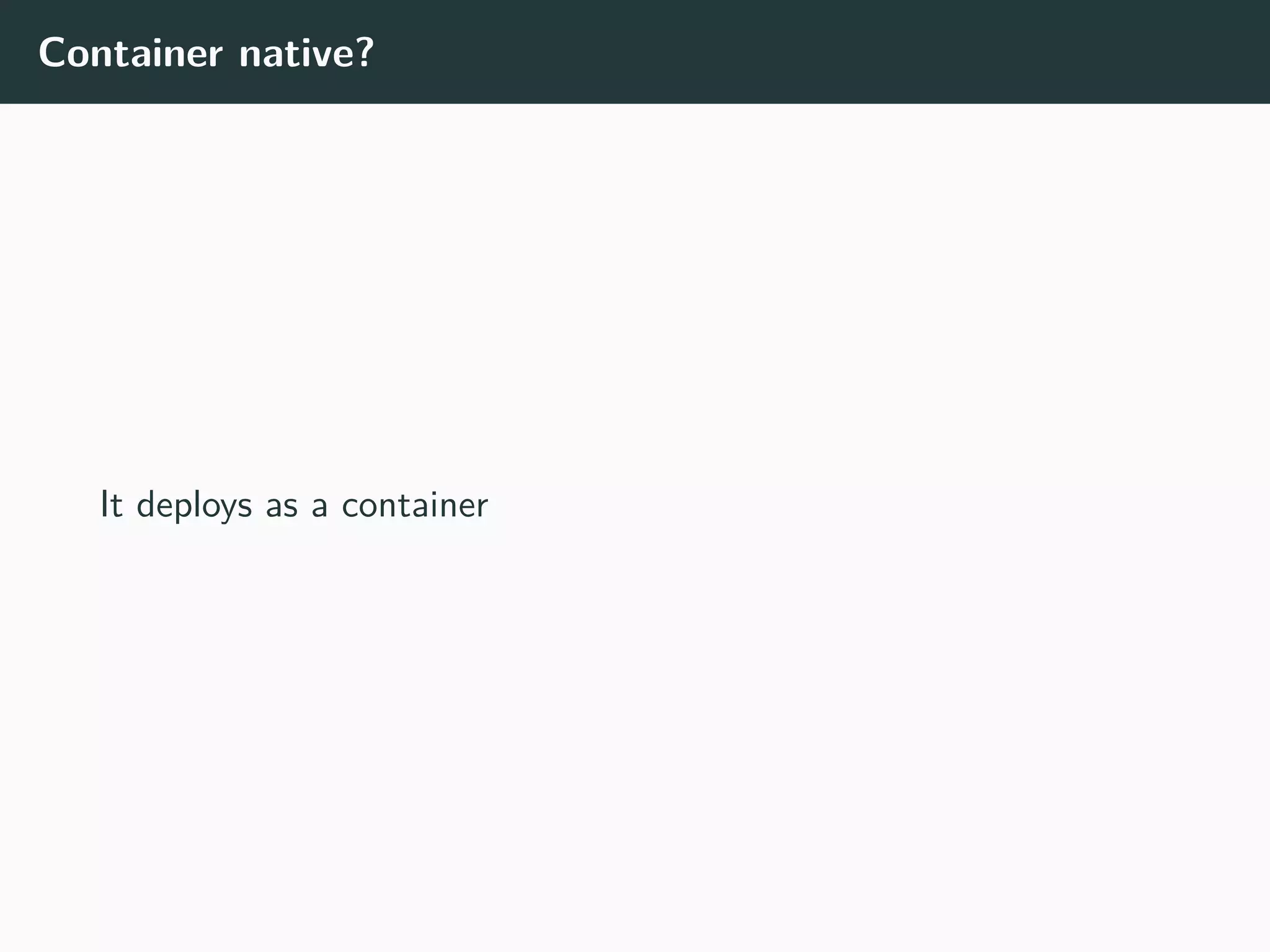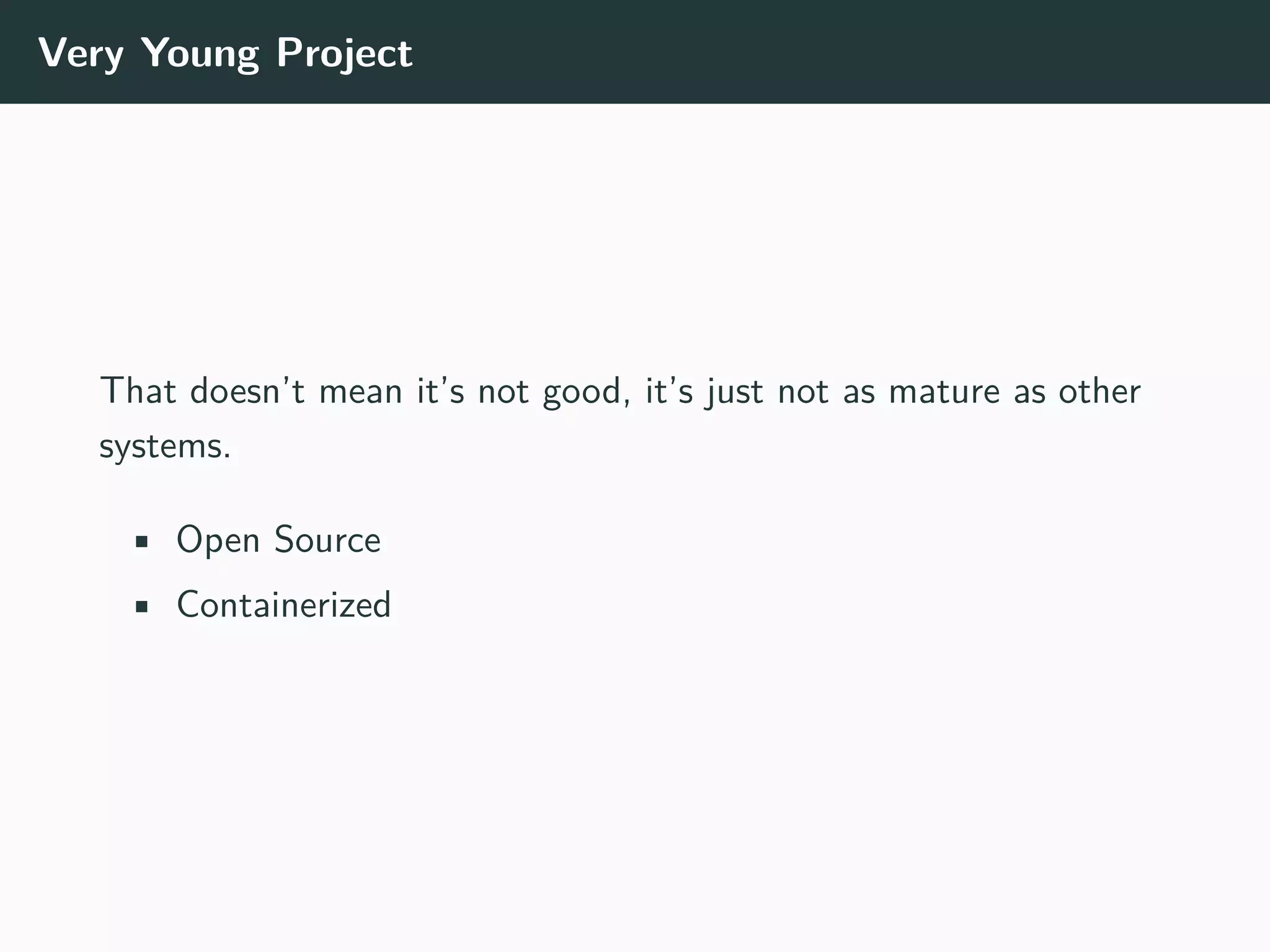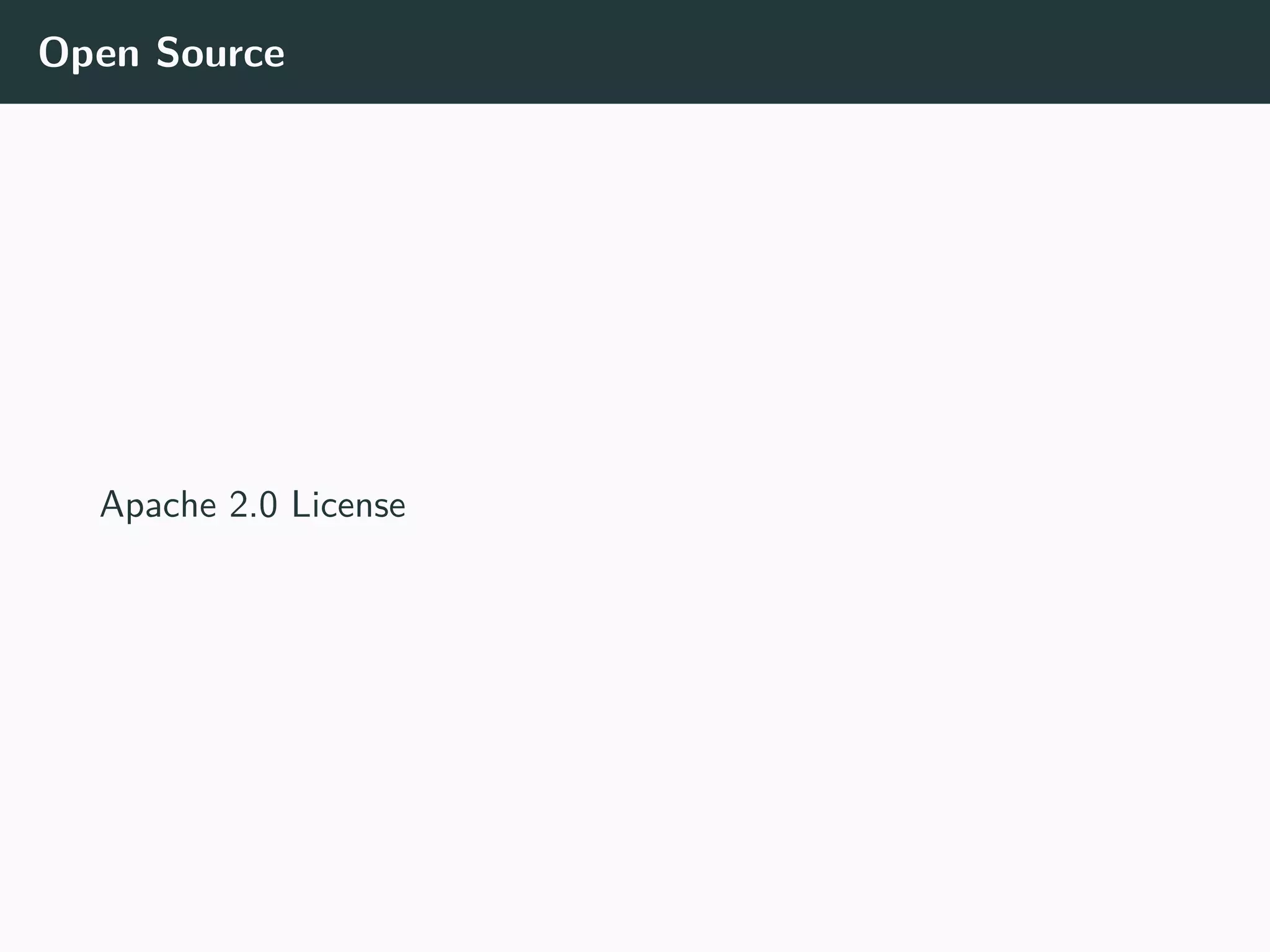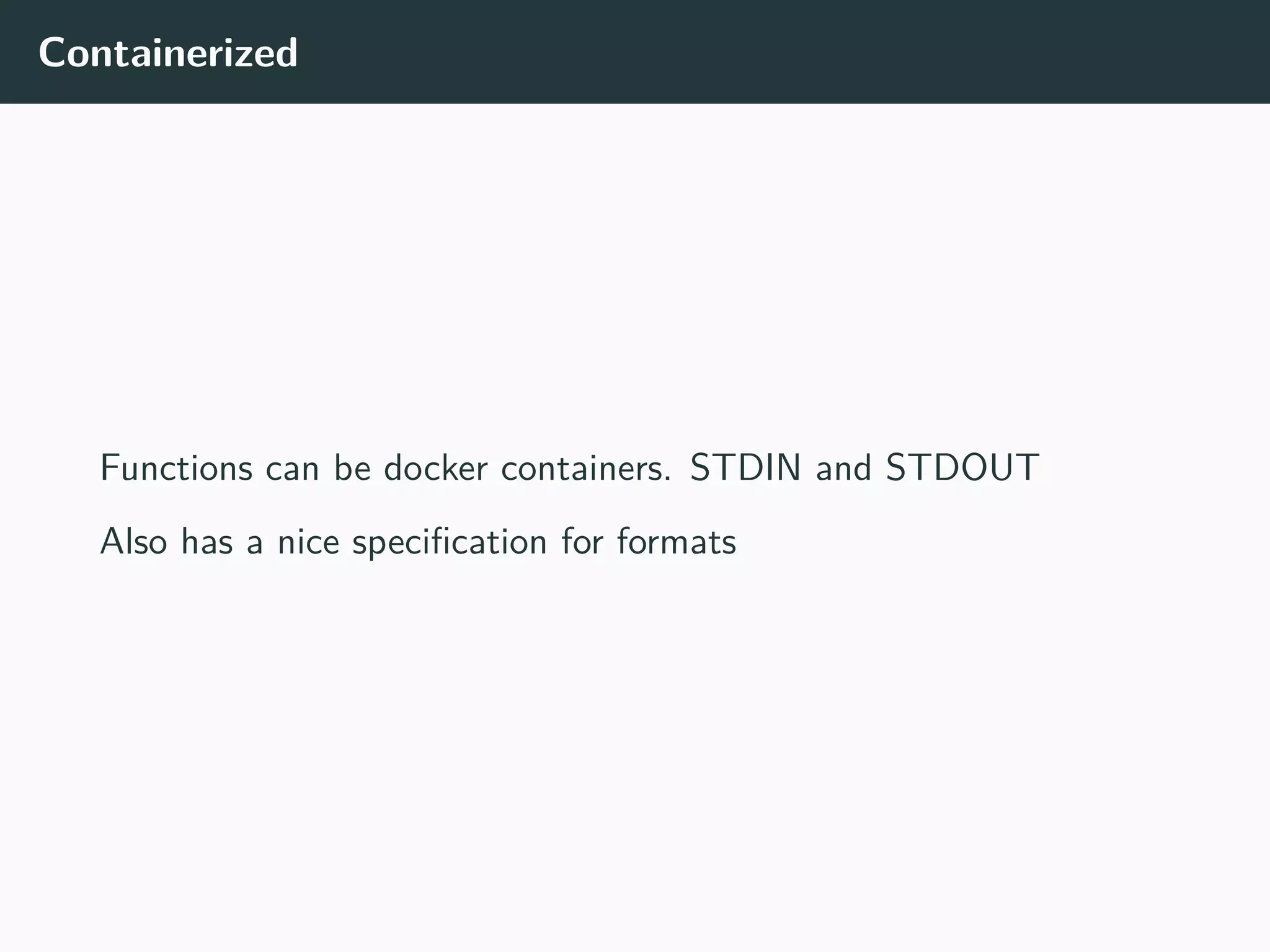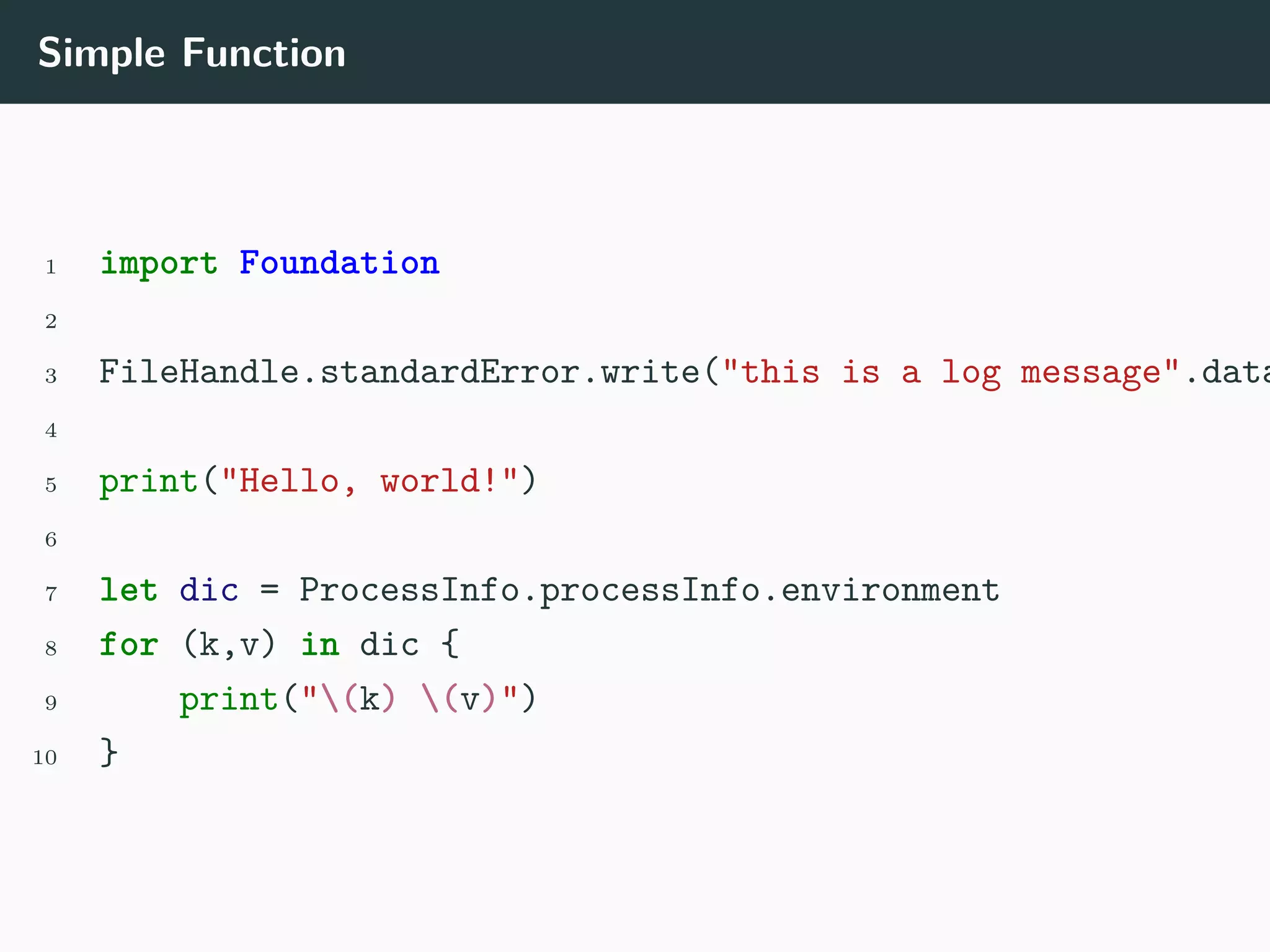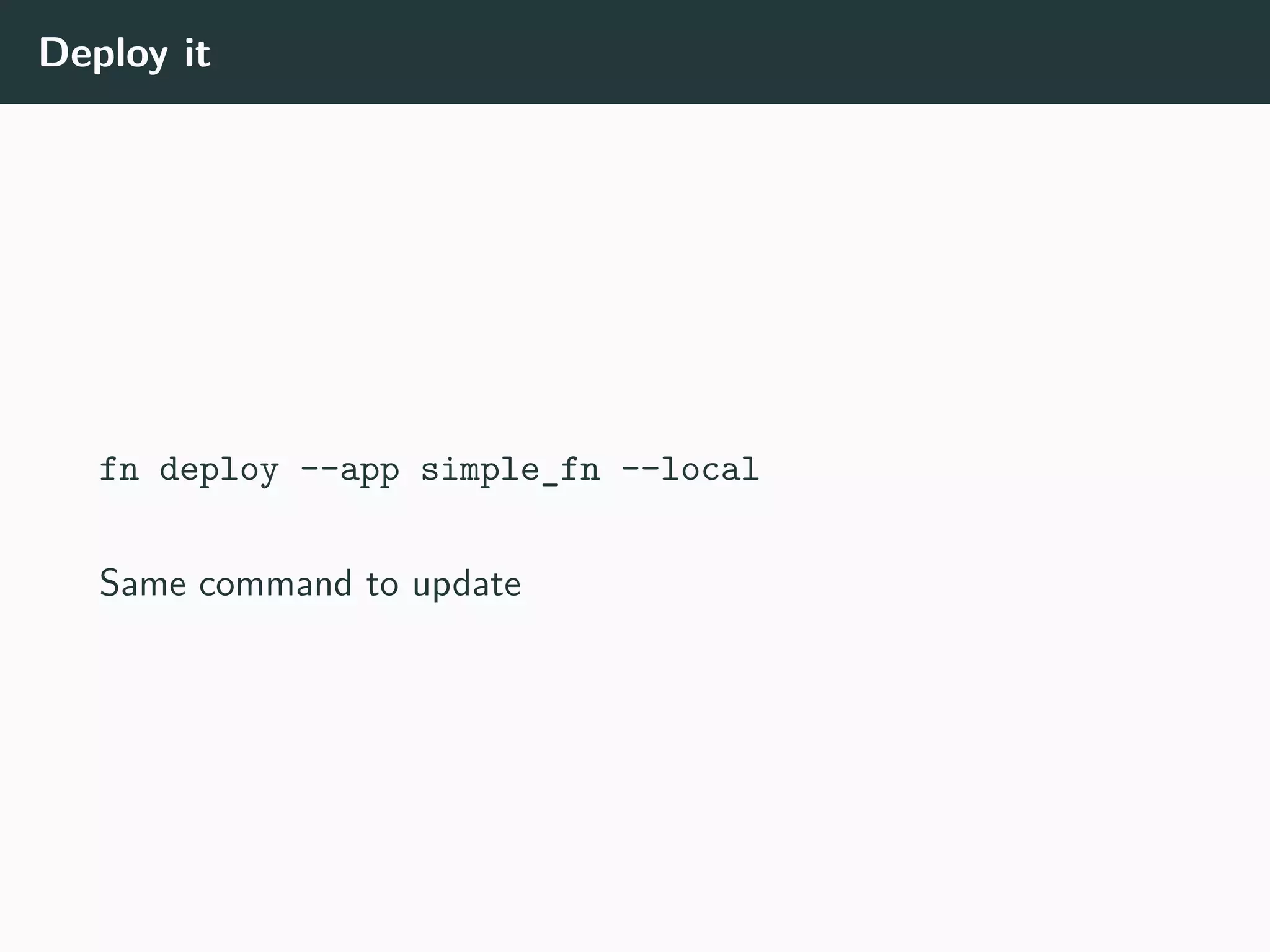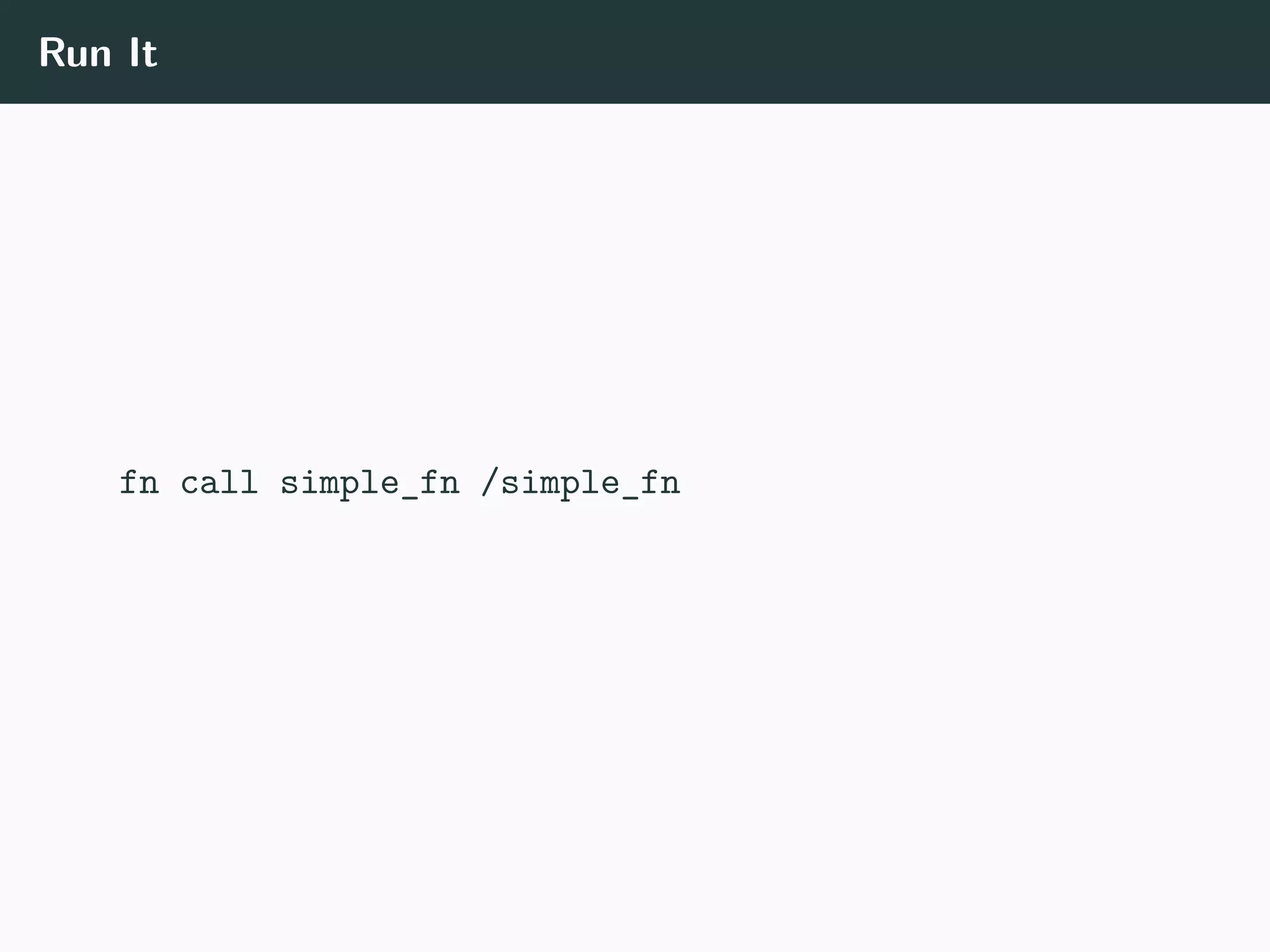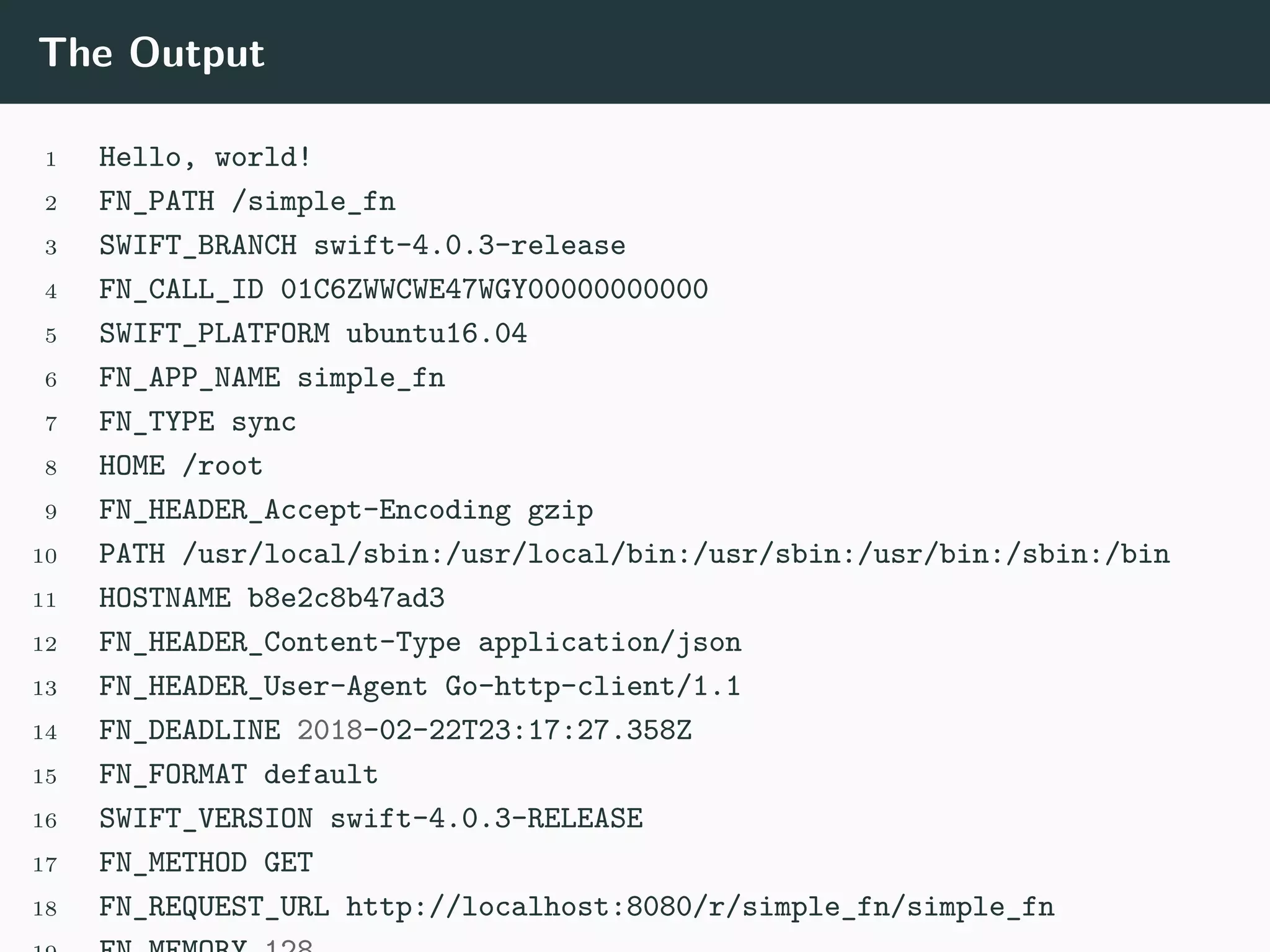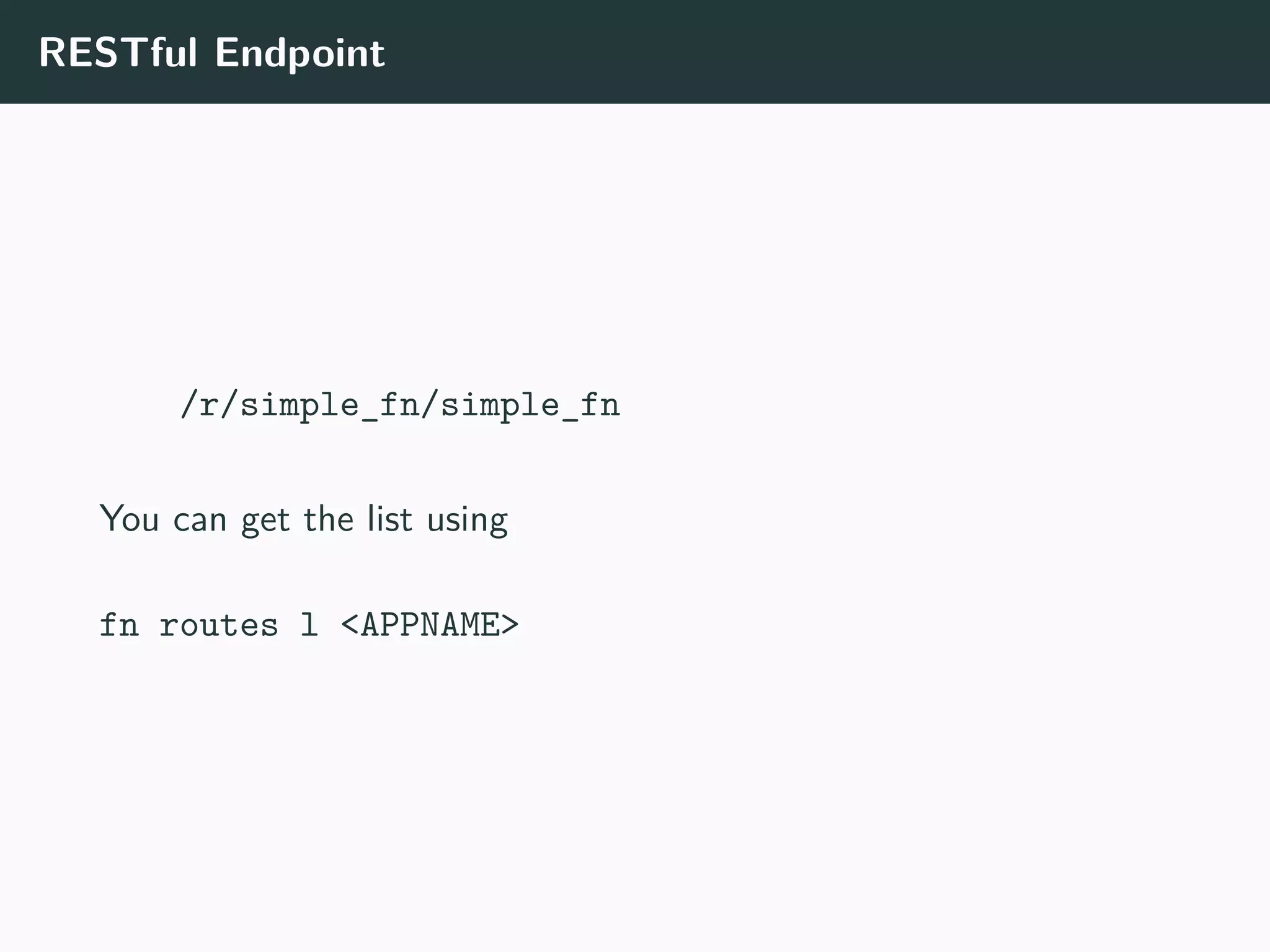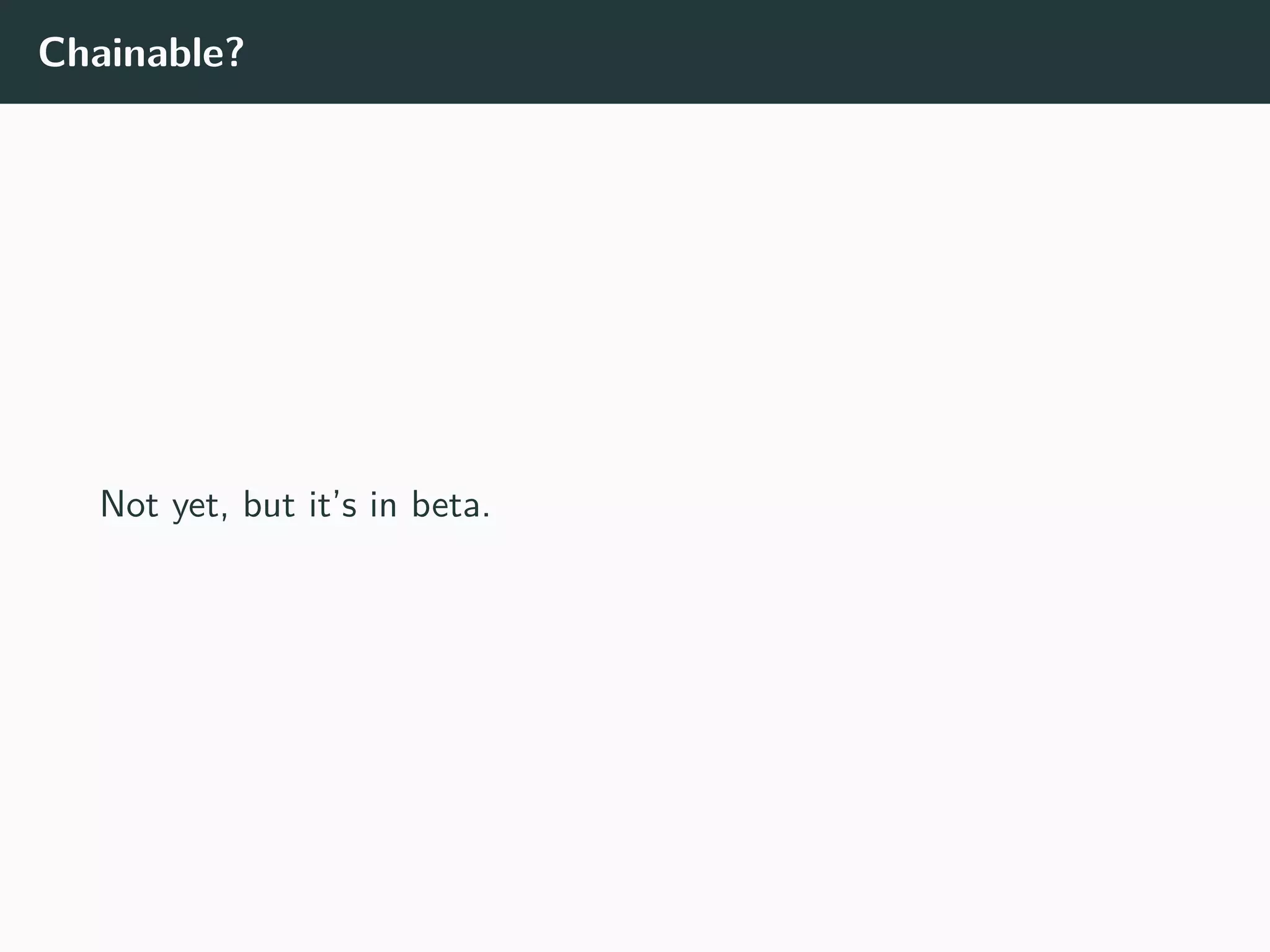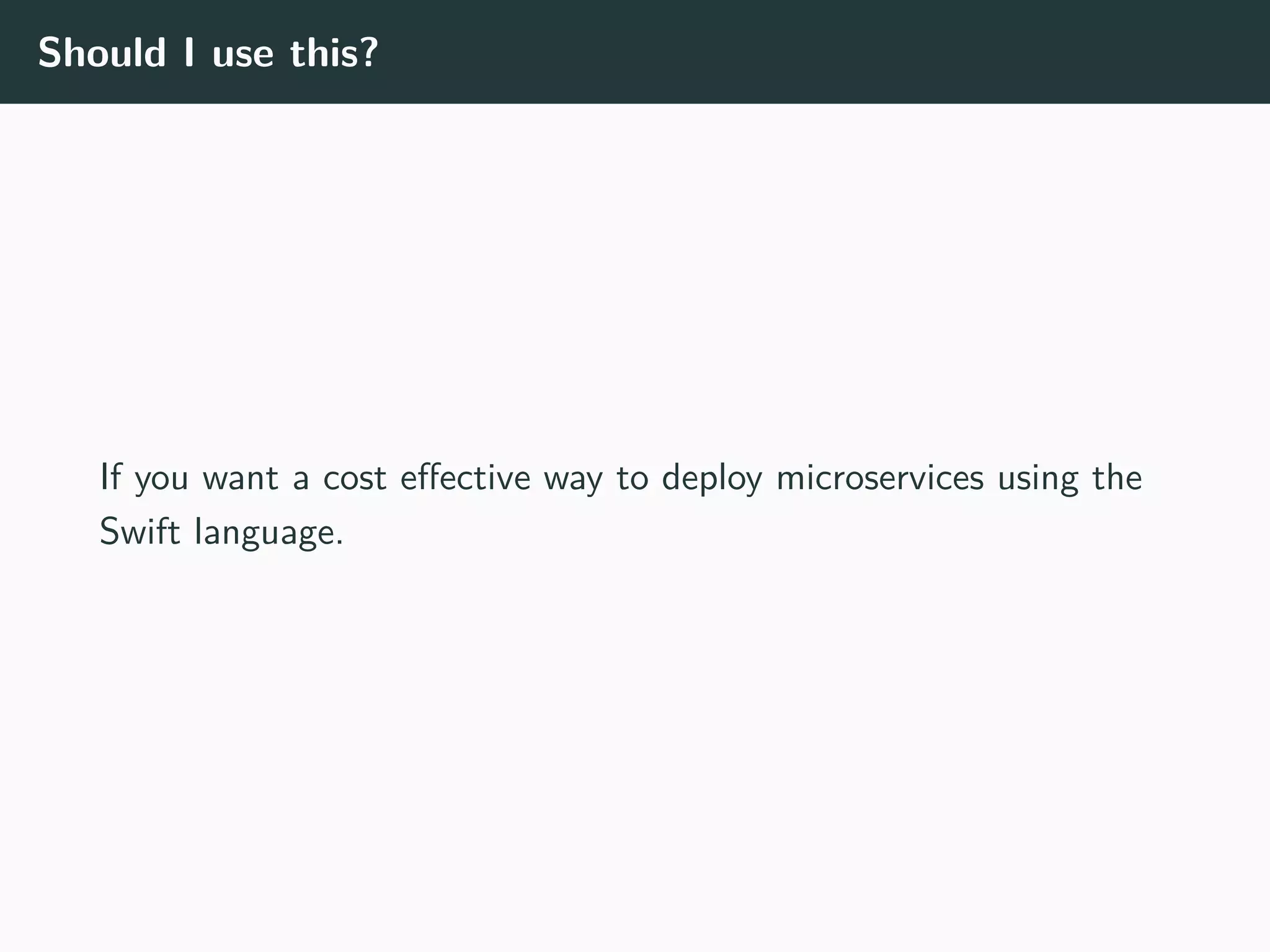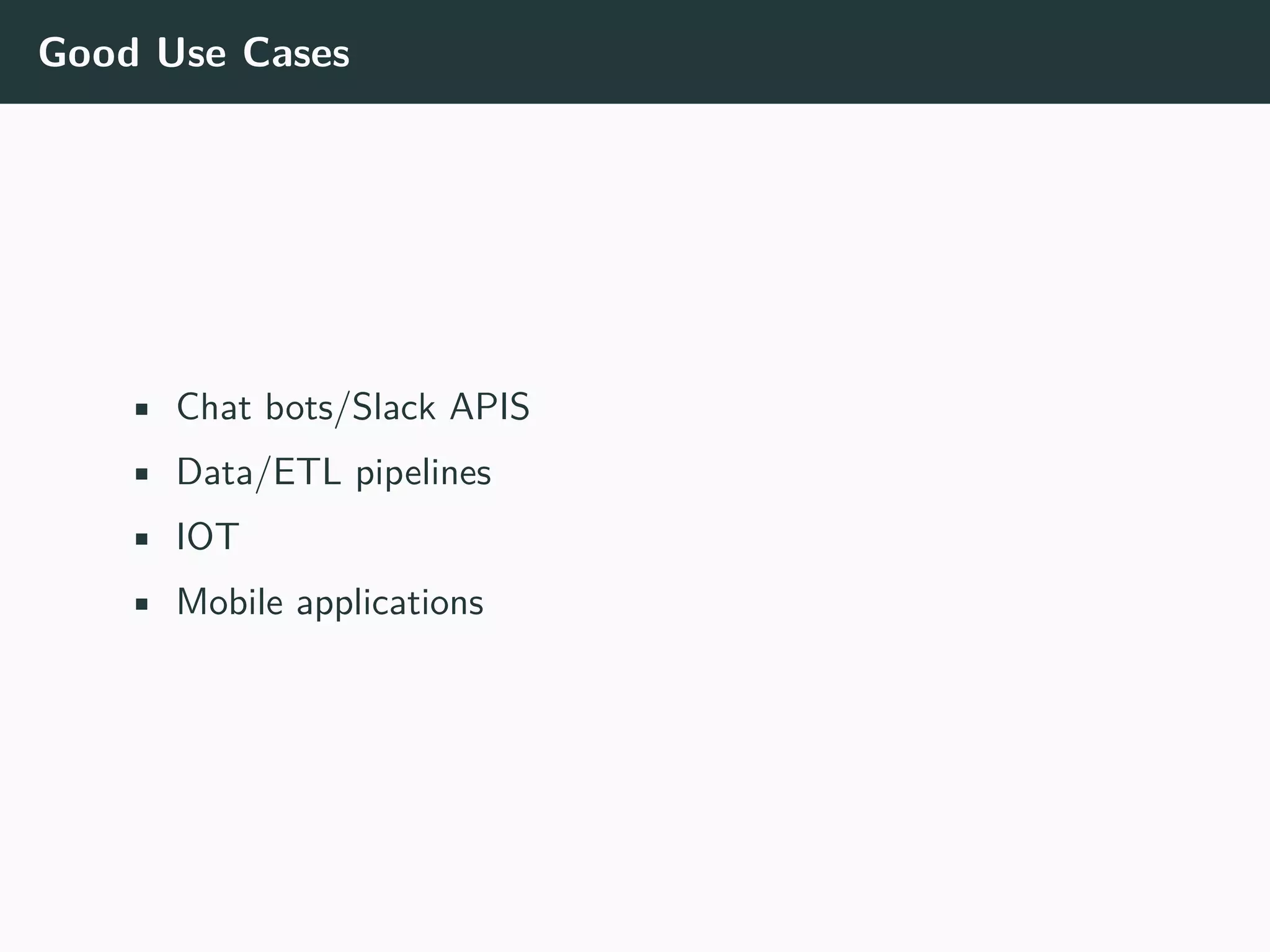The document discusses two serverless computing platforms that support Swift - OpenWhisk and Fn.
OpenWhisk is an open source system that is event-driven, containerized, and allows chaining of actions. It is hosted on Bluemix but can be difficult to deploy elsewhere. Fn is container-native and deploys functions as containers communicating via standard input/output. Both allow simple Swift functions to be deployed and called remotely with REST APIs or command line tools. The document provides examples of writing, deploying and calling functions on each platform.
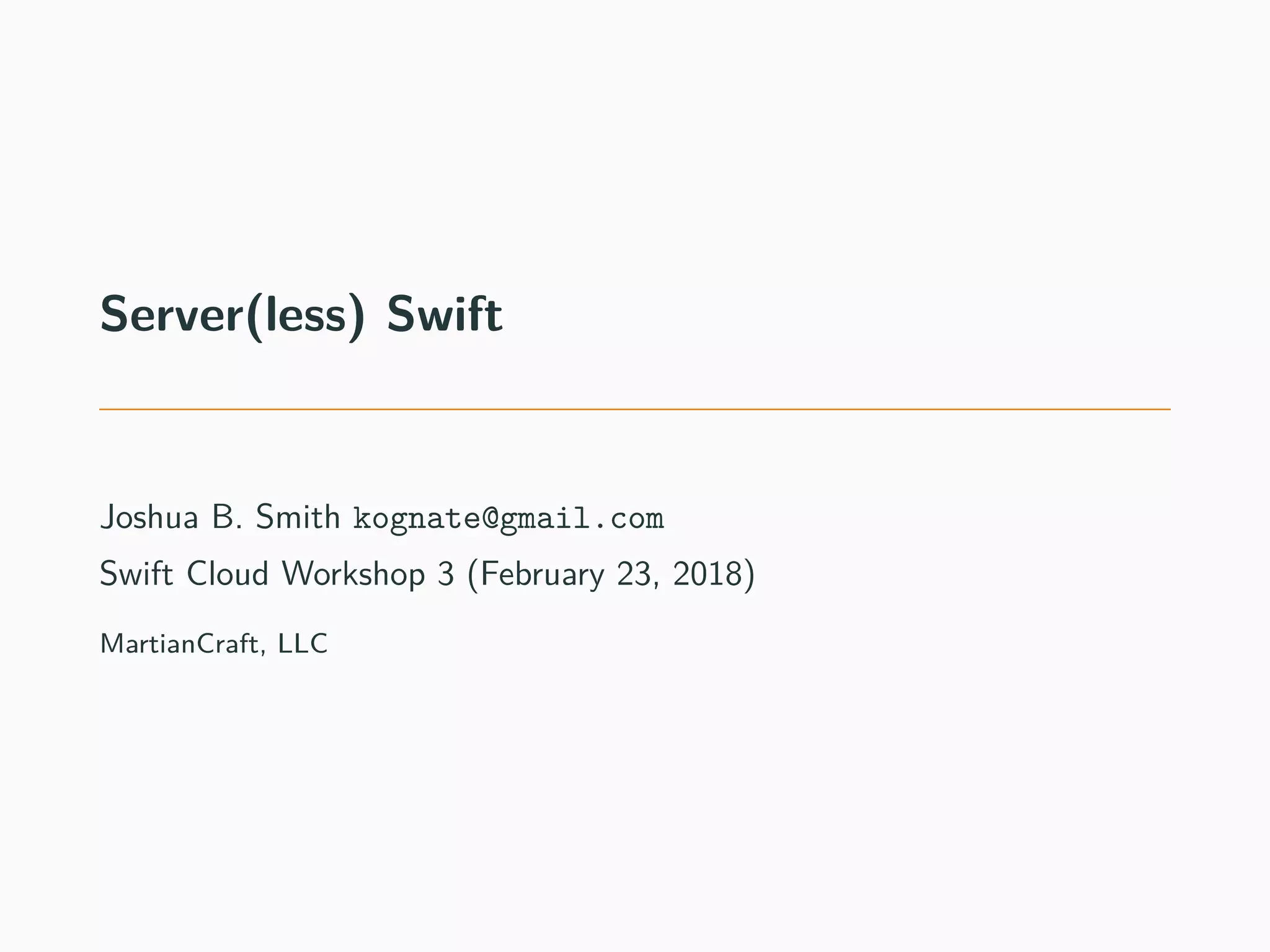

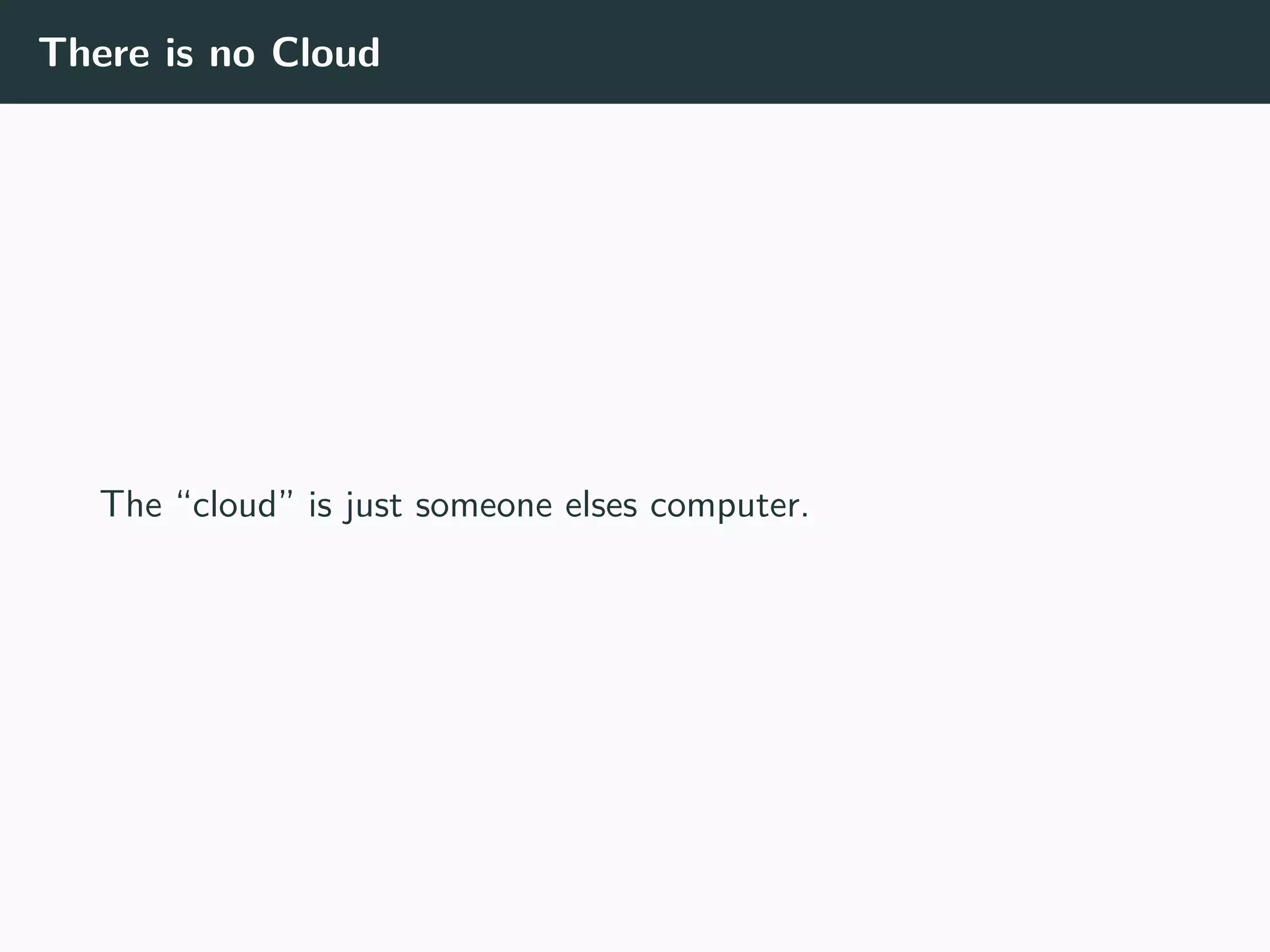

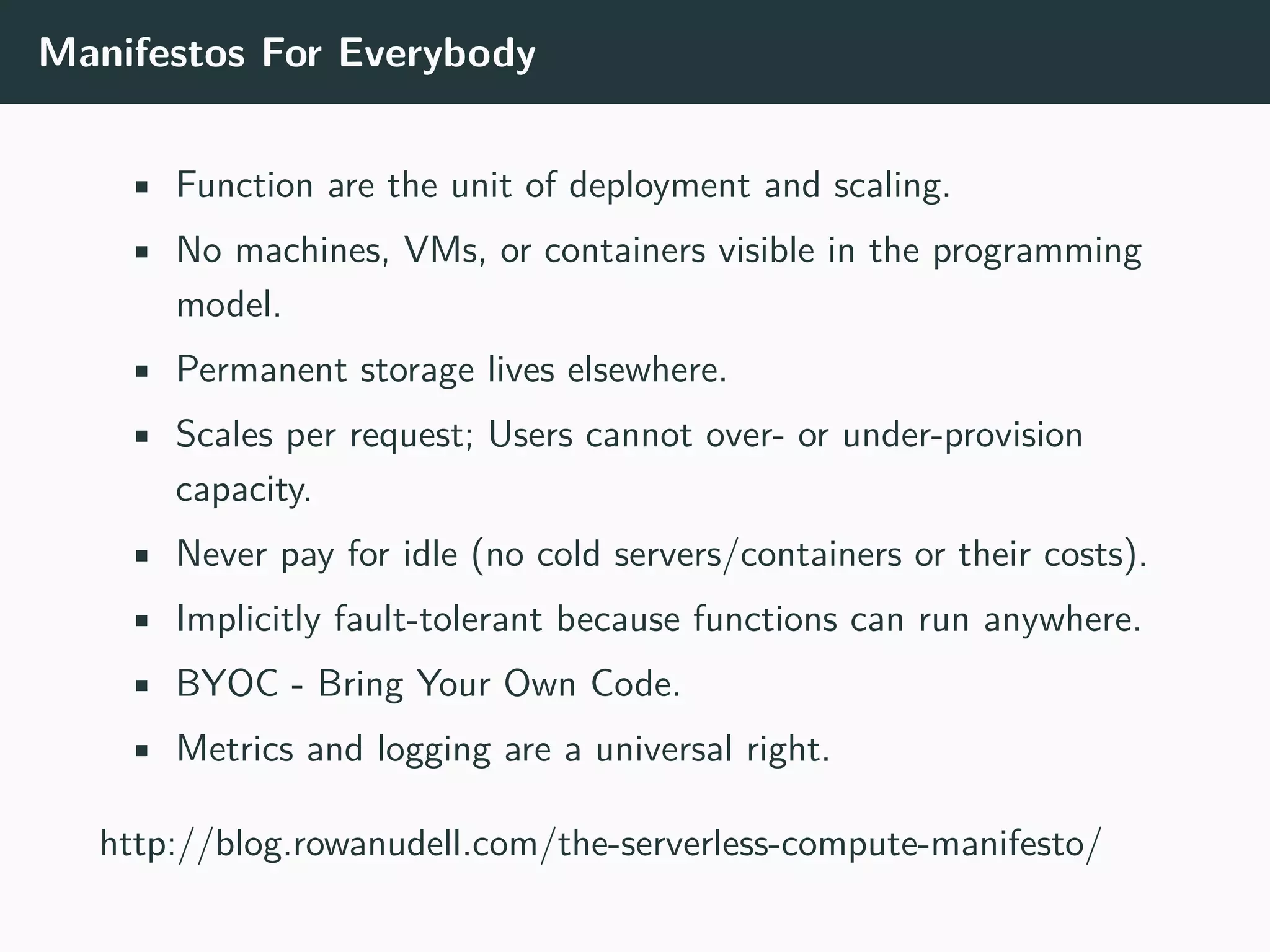
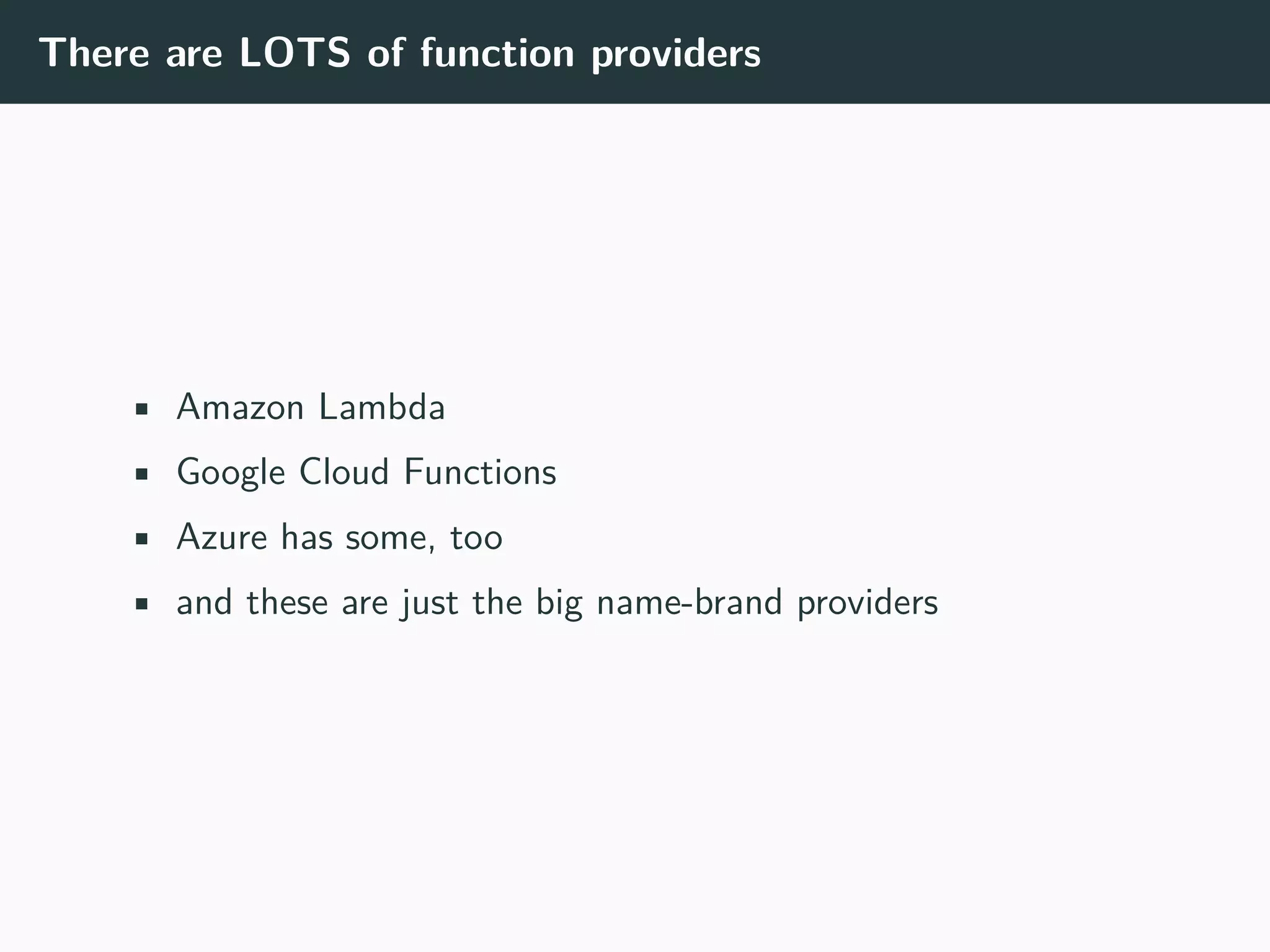
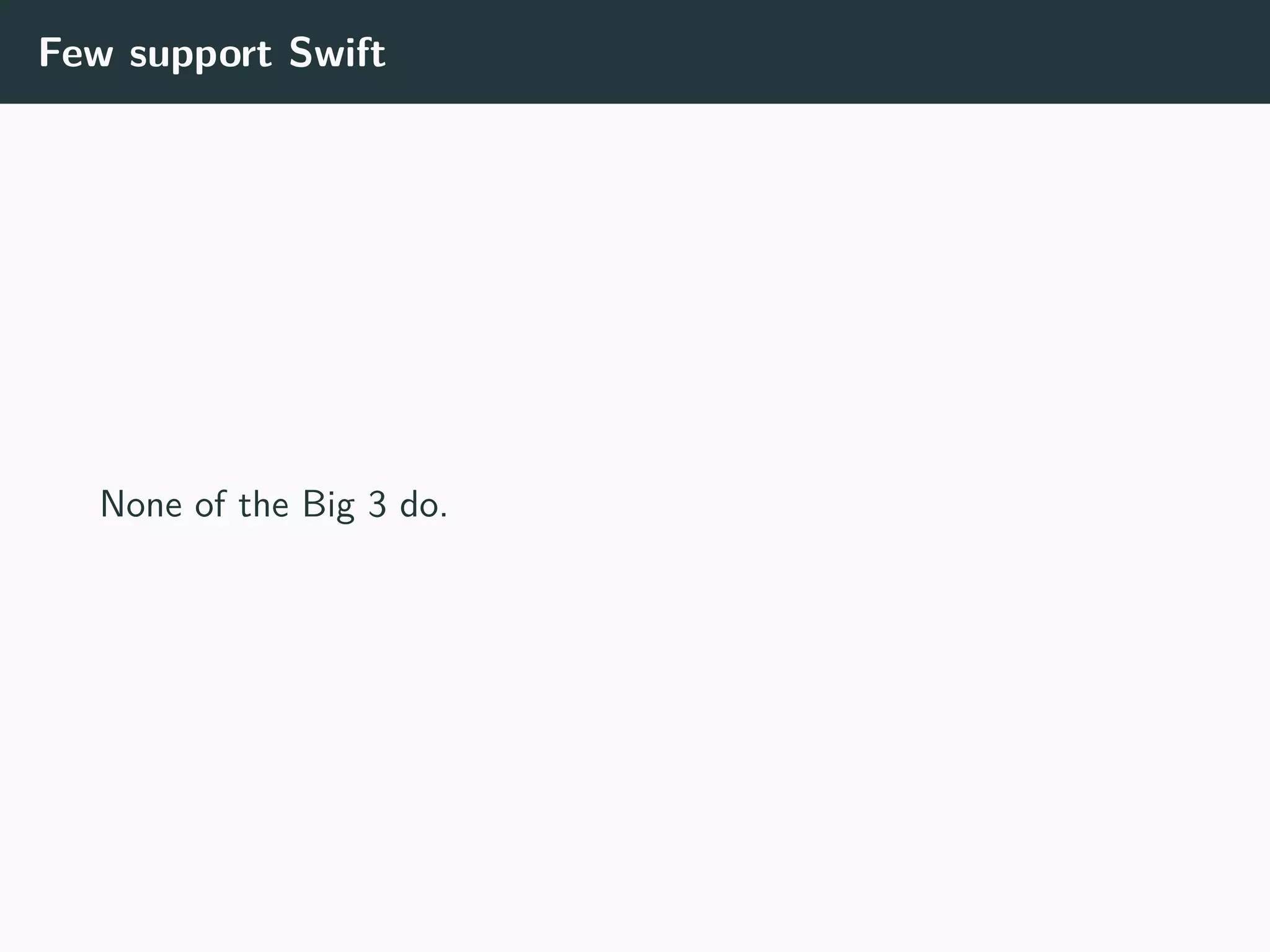
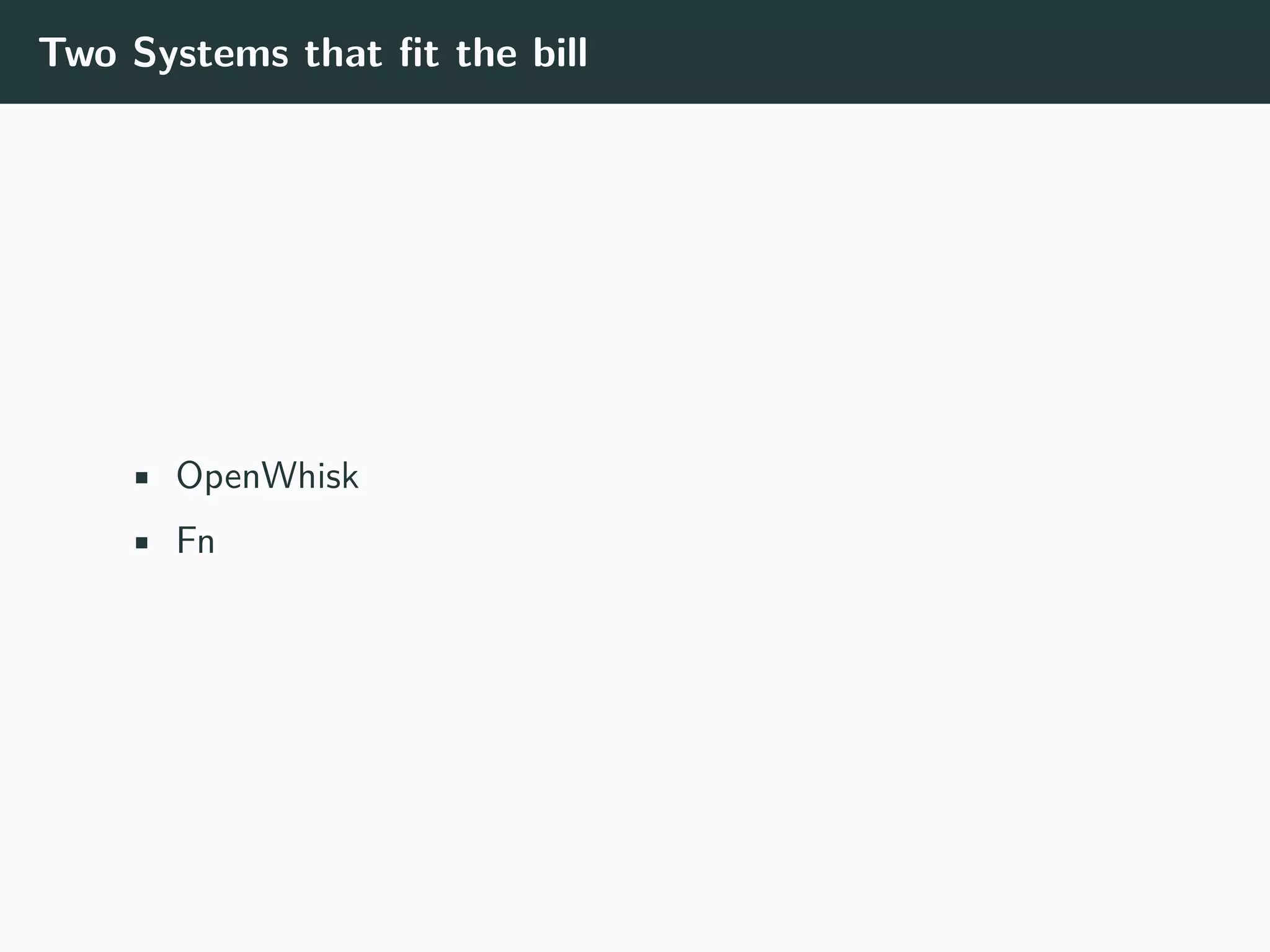
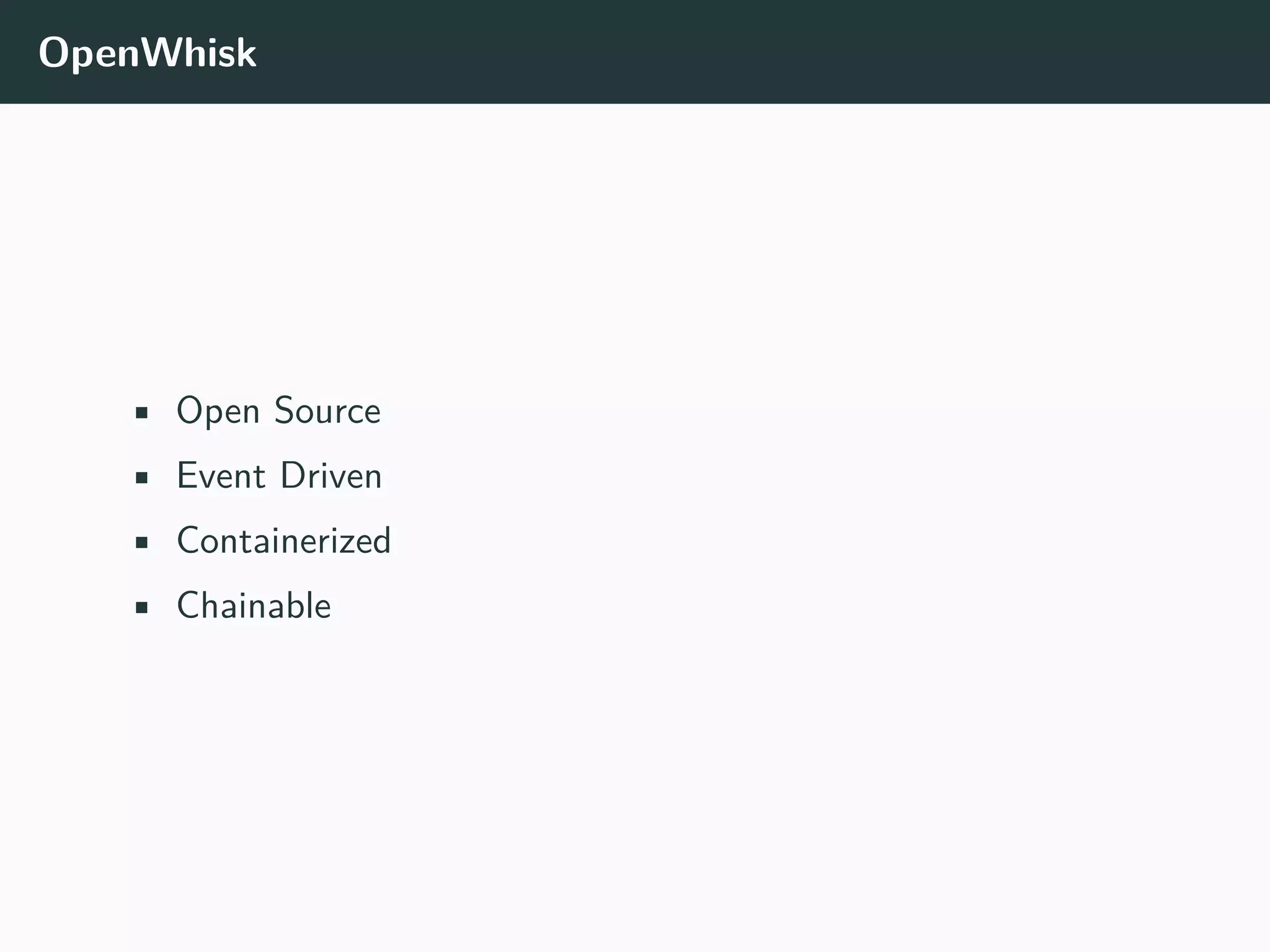
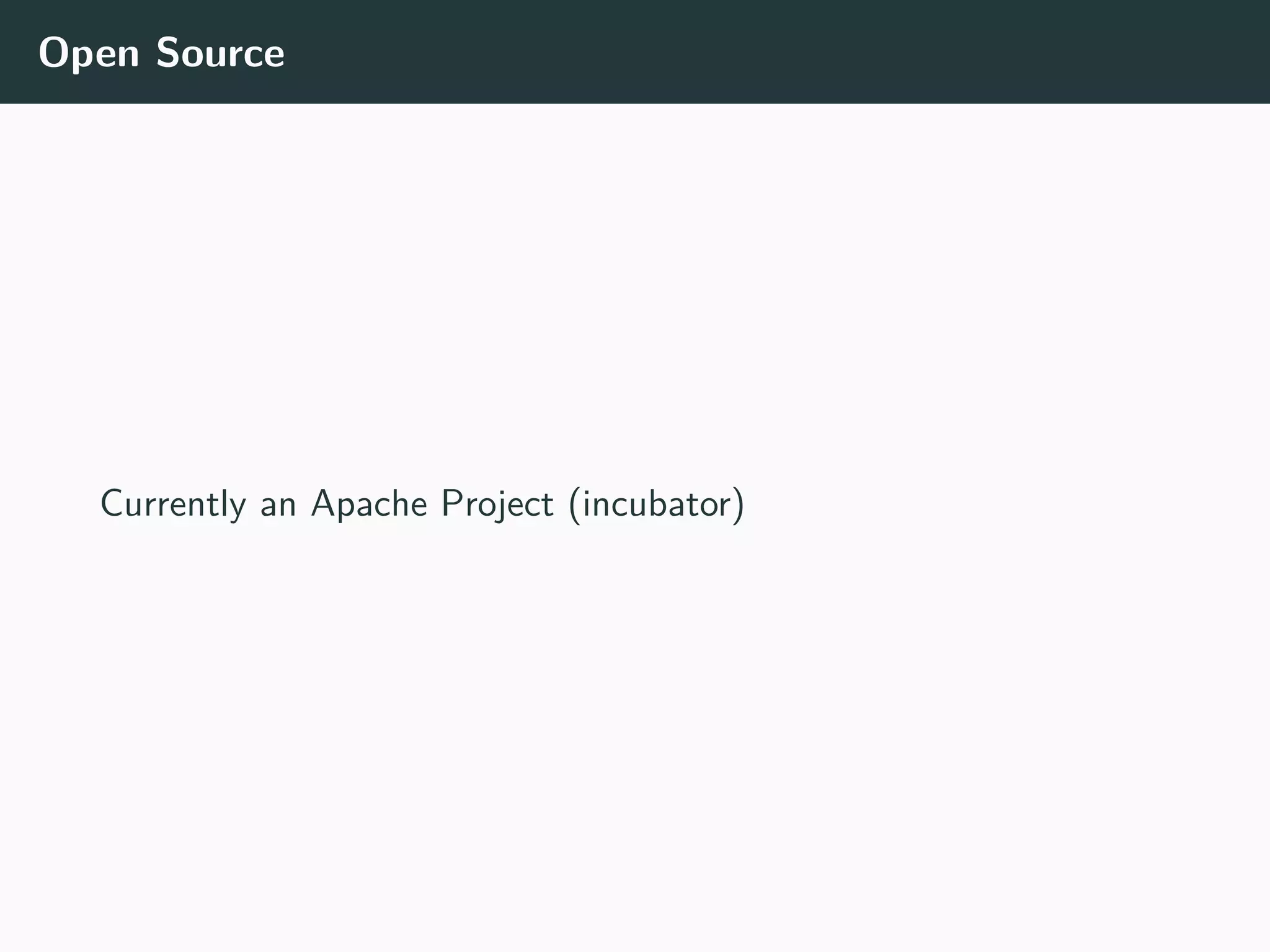
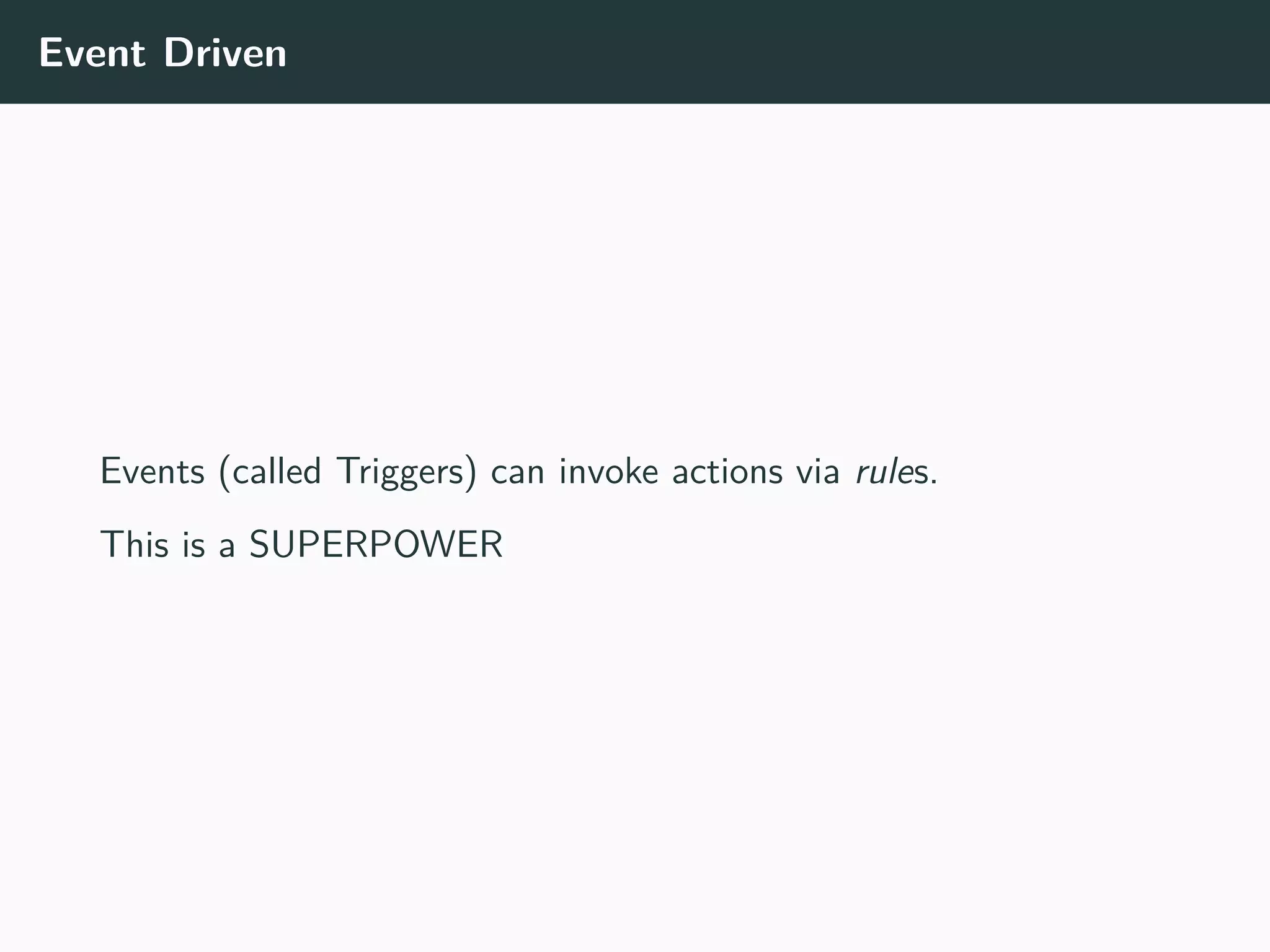
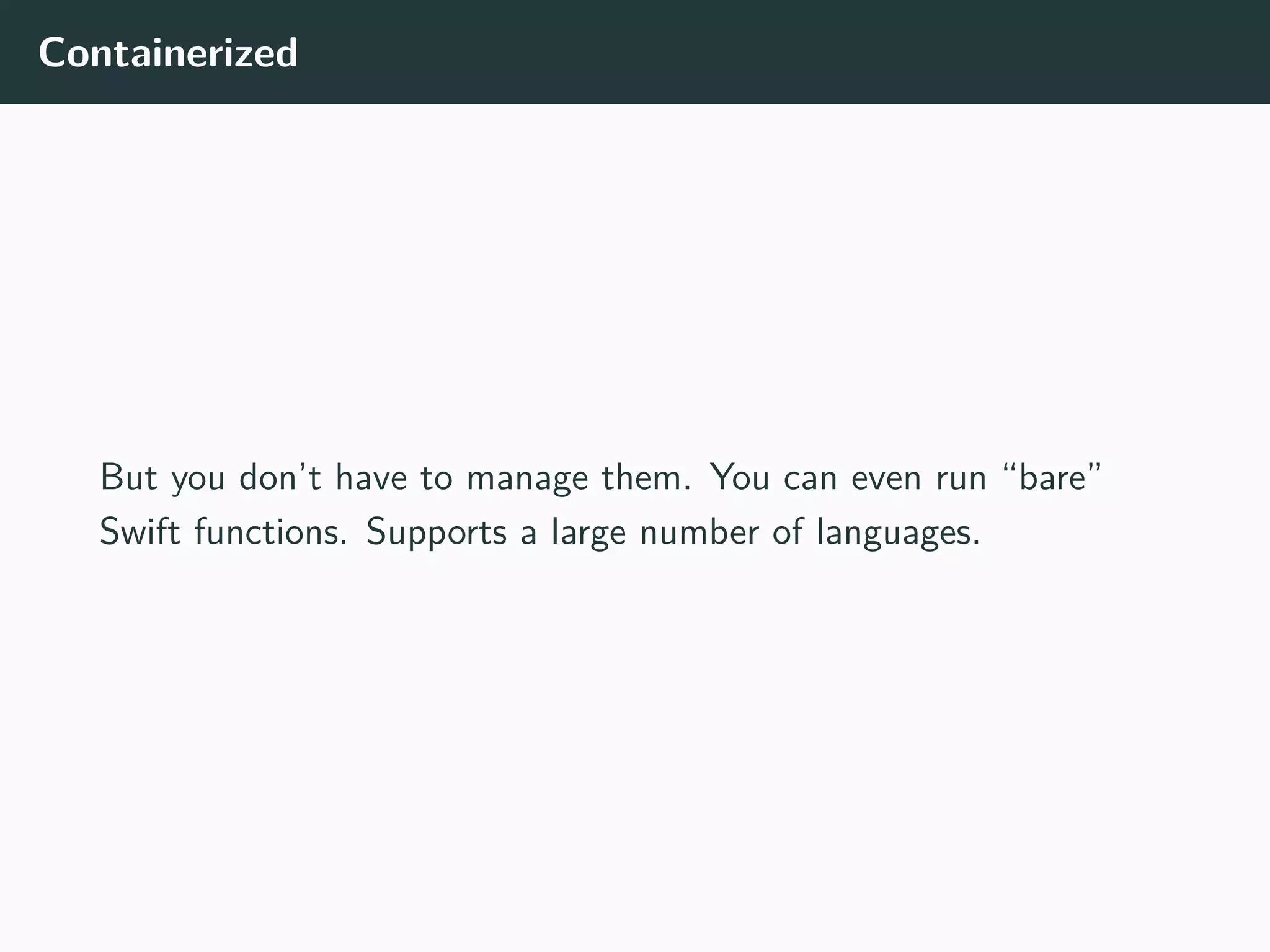
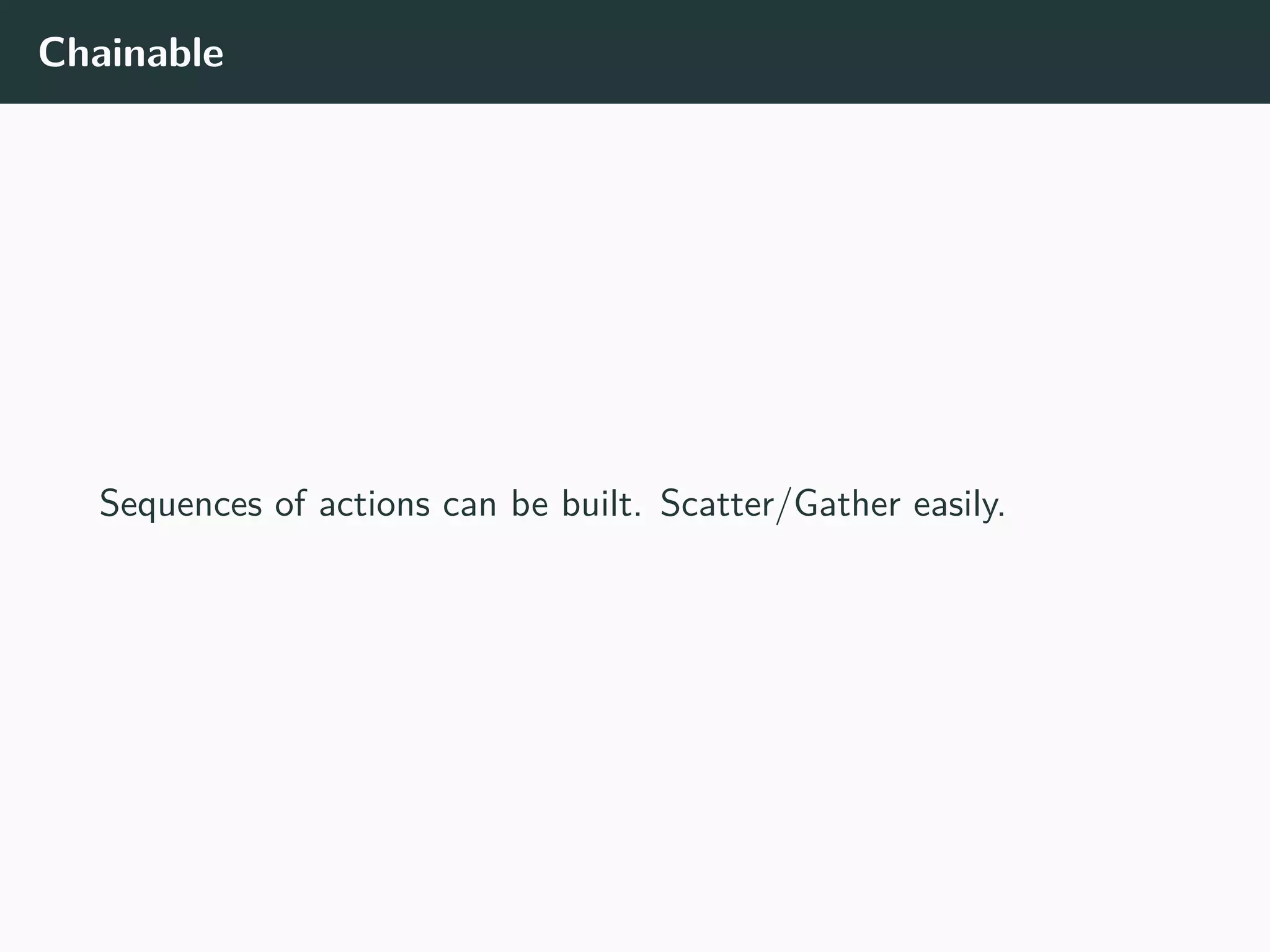
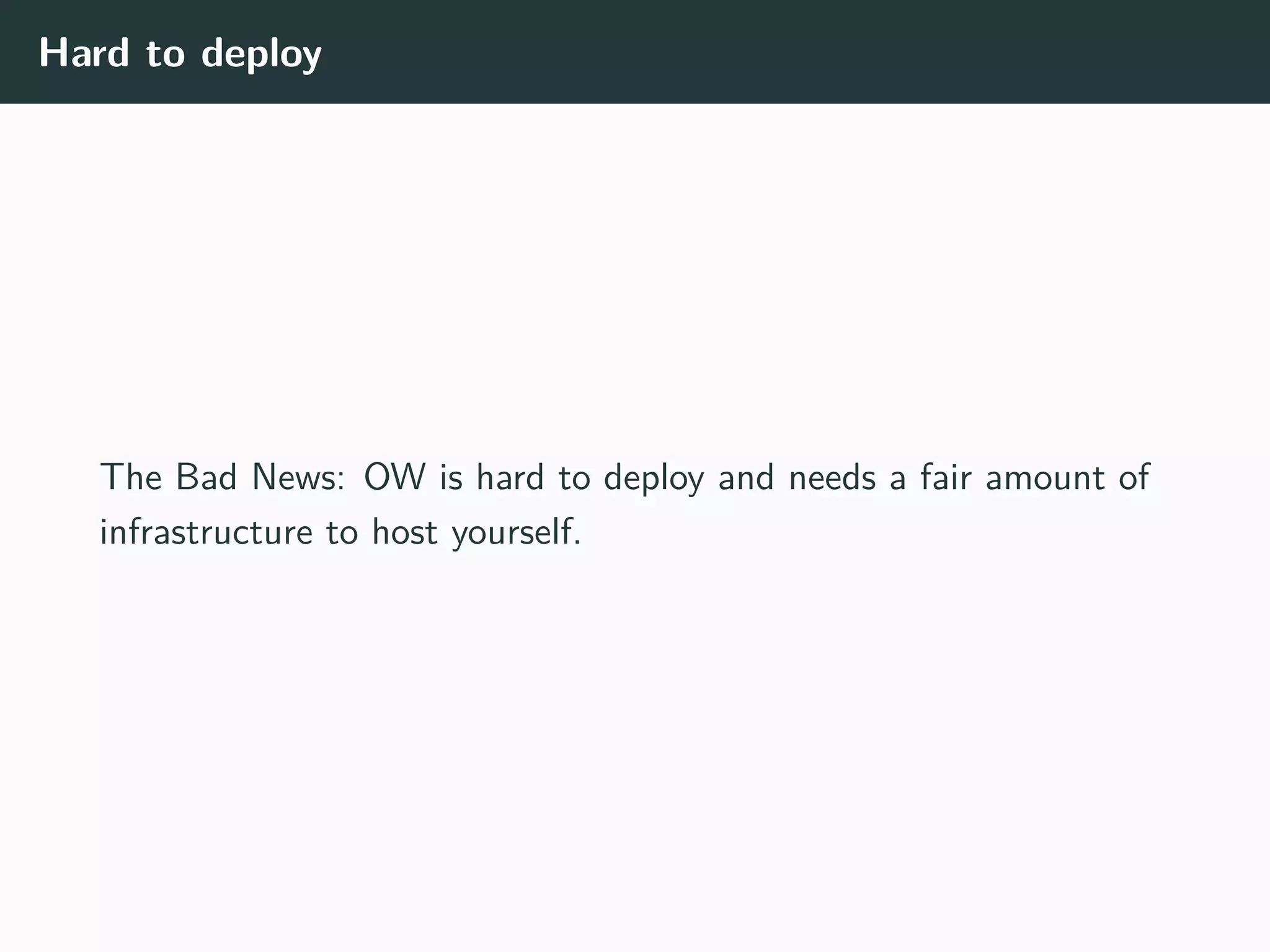
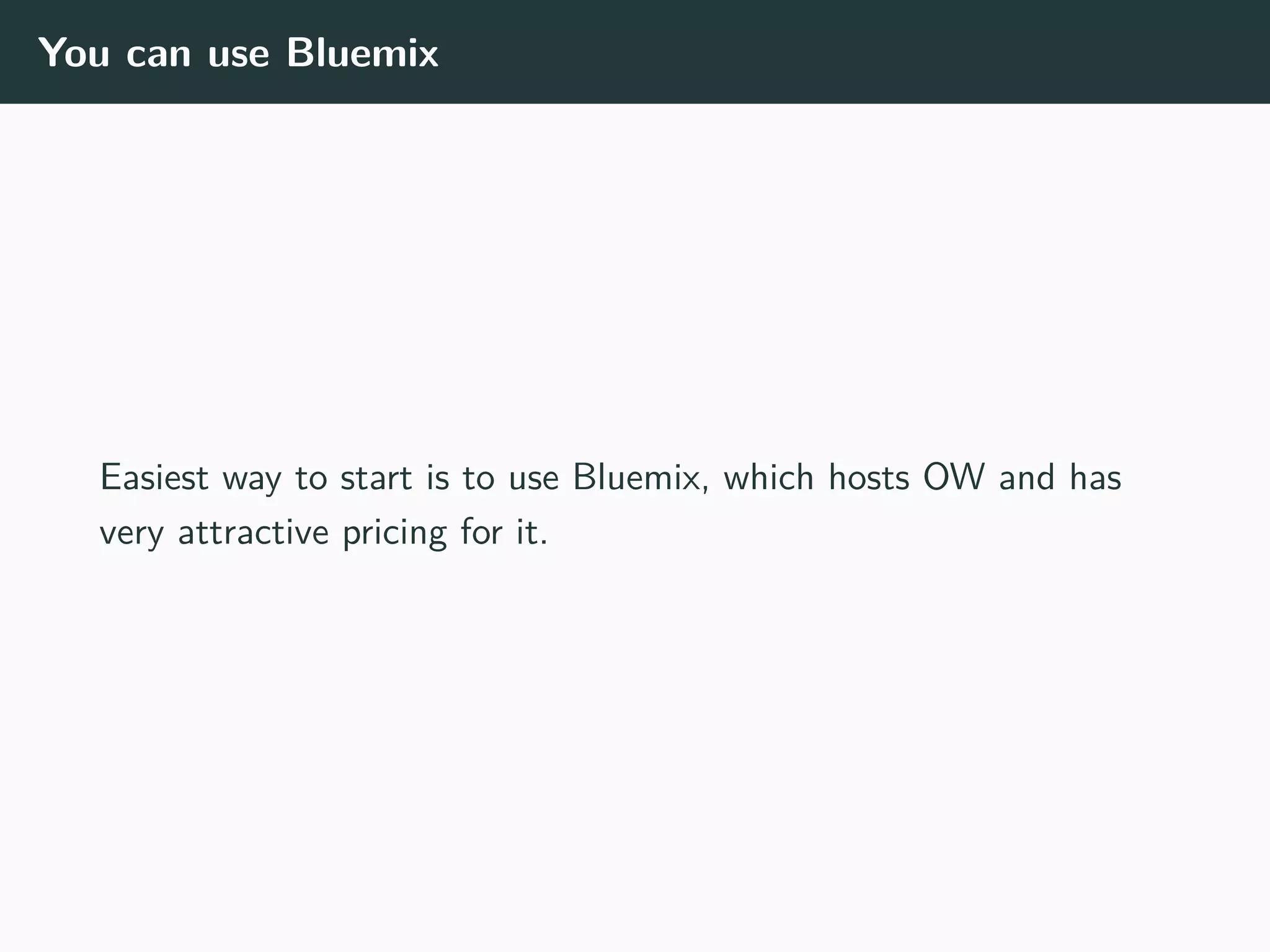
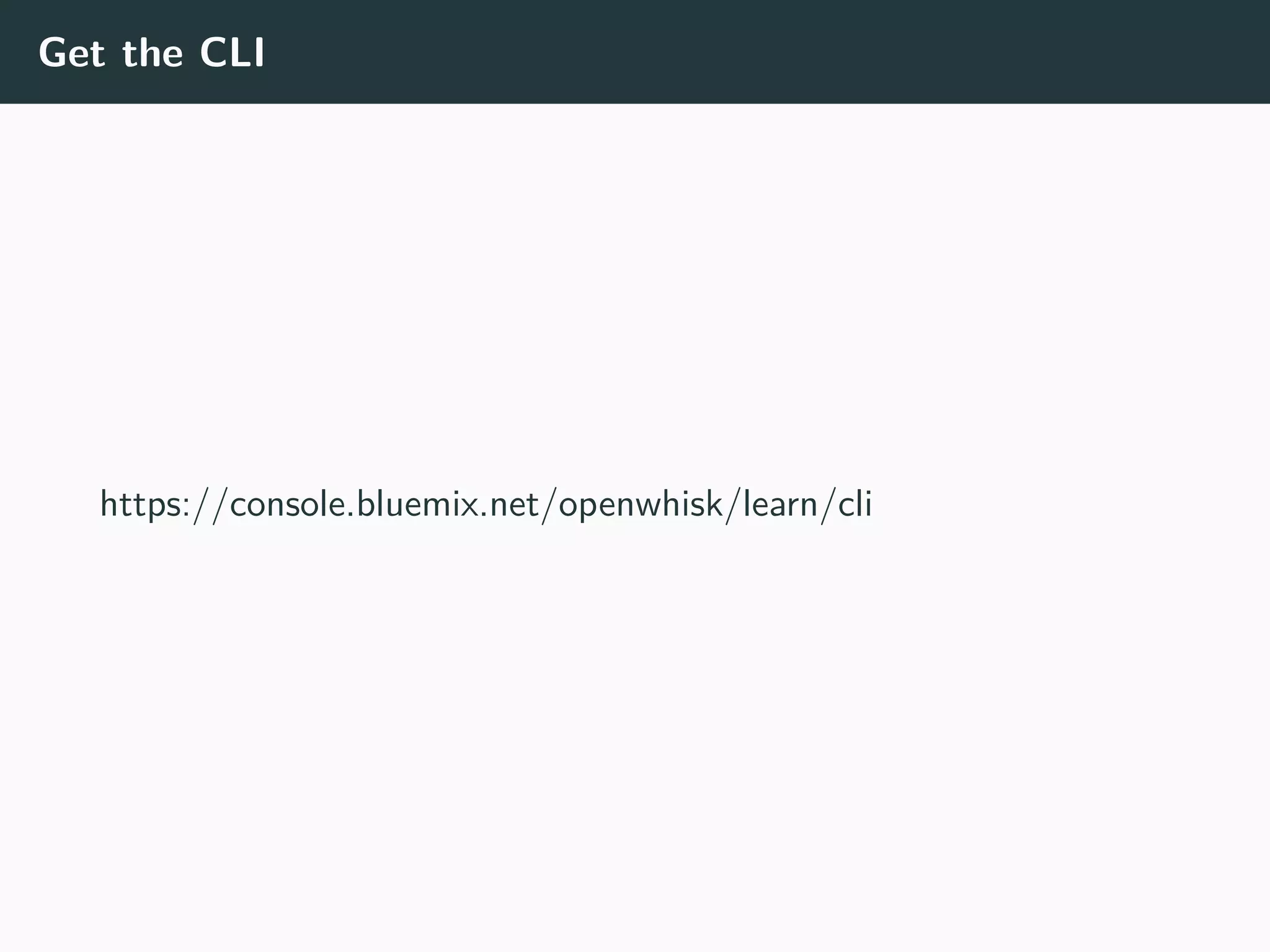
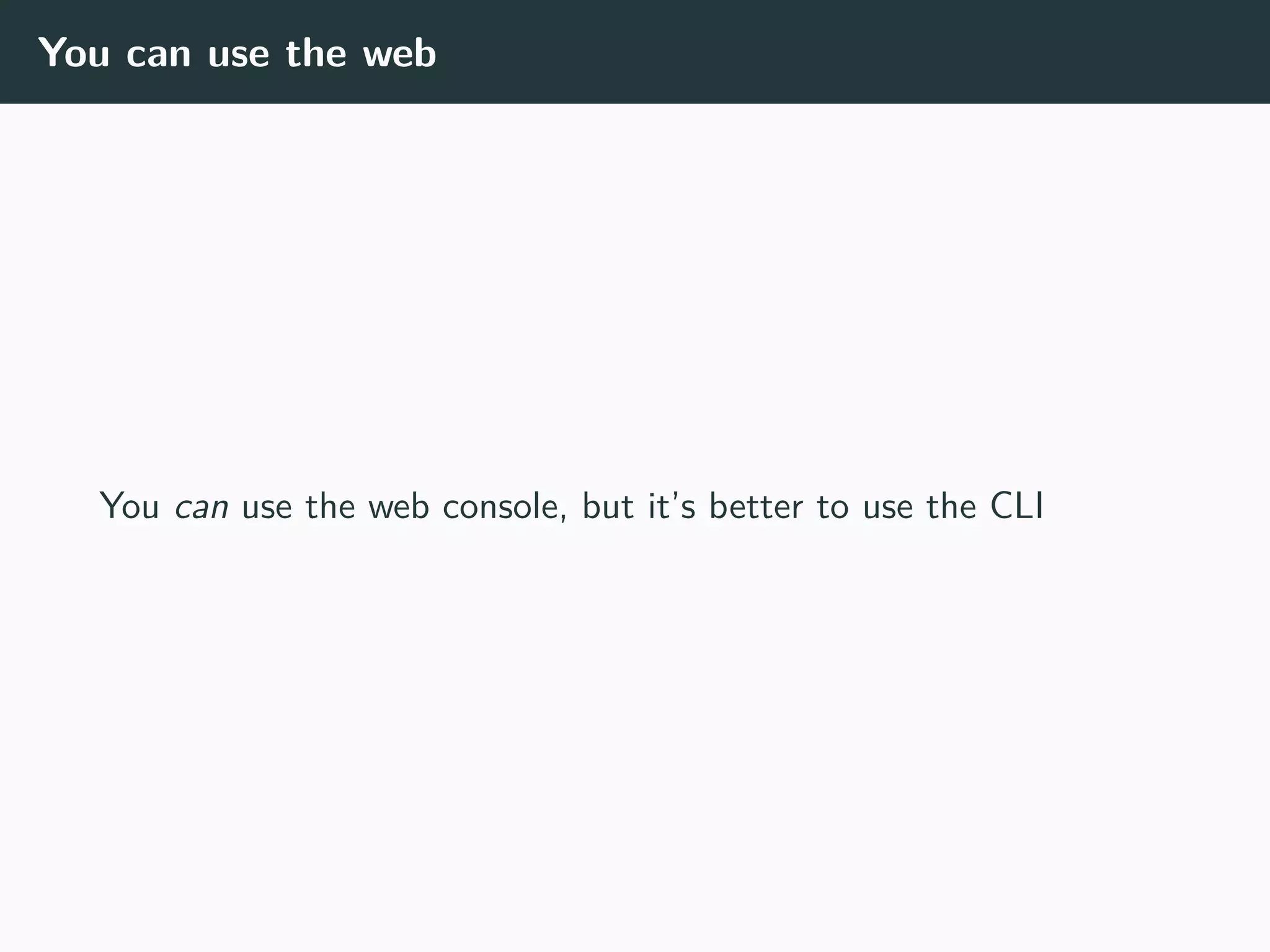
![Simple Function
1 func main(args: [String:Any]) -> [String:Any] {
2 var res: [String: Any] = [:]
3 for (k, v) in args {
4 res[k] = v
5 }
6 return res
7 }](https://image.slidesharecdn.com/serversideswift-180223225339/75/Server-less-Swift-at-SwiftCloudWorkshop-3-18-2048.jpg)
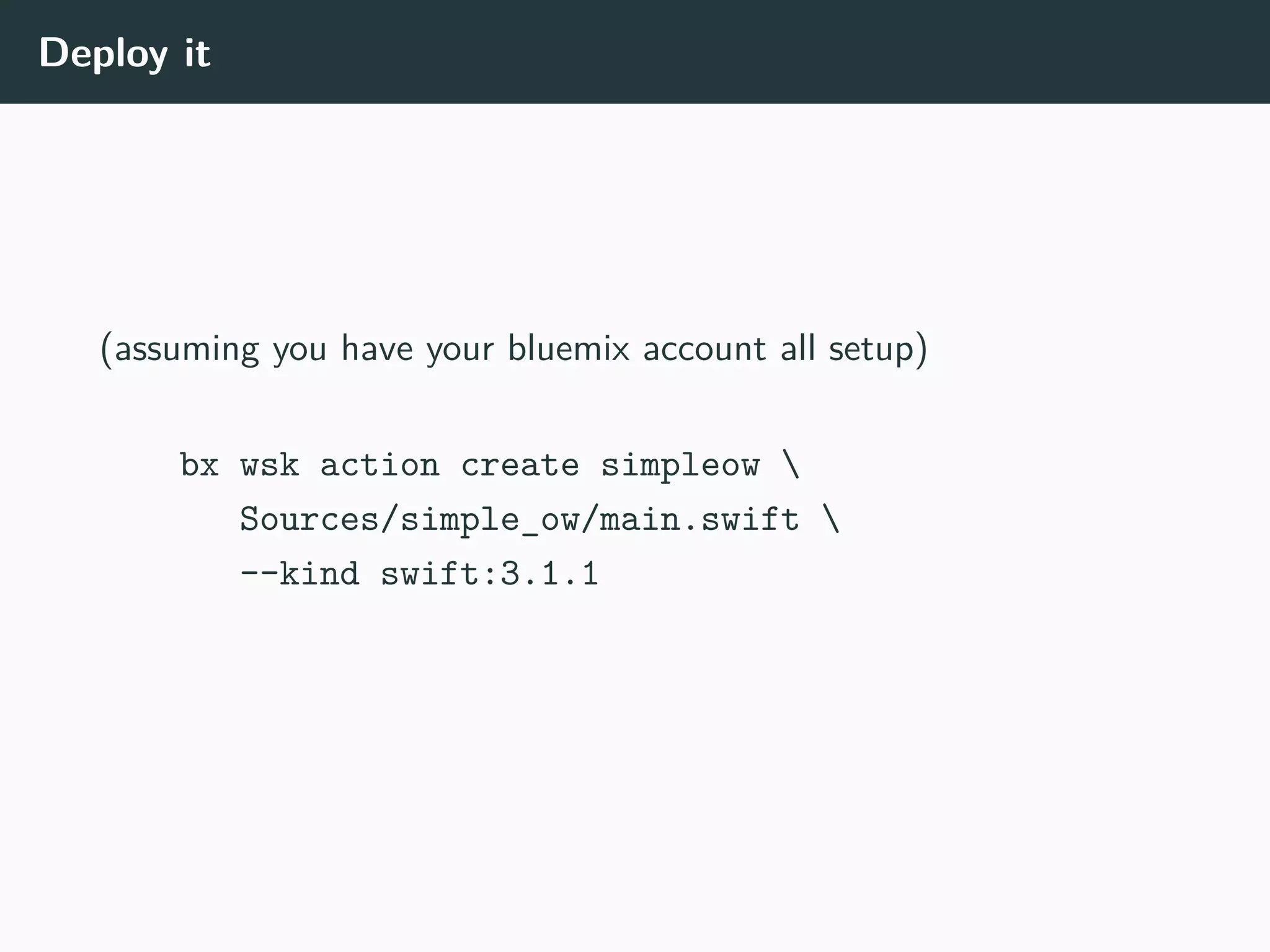
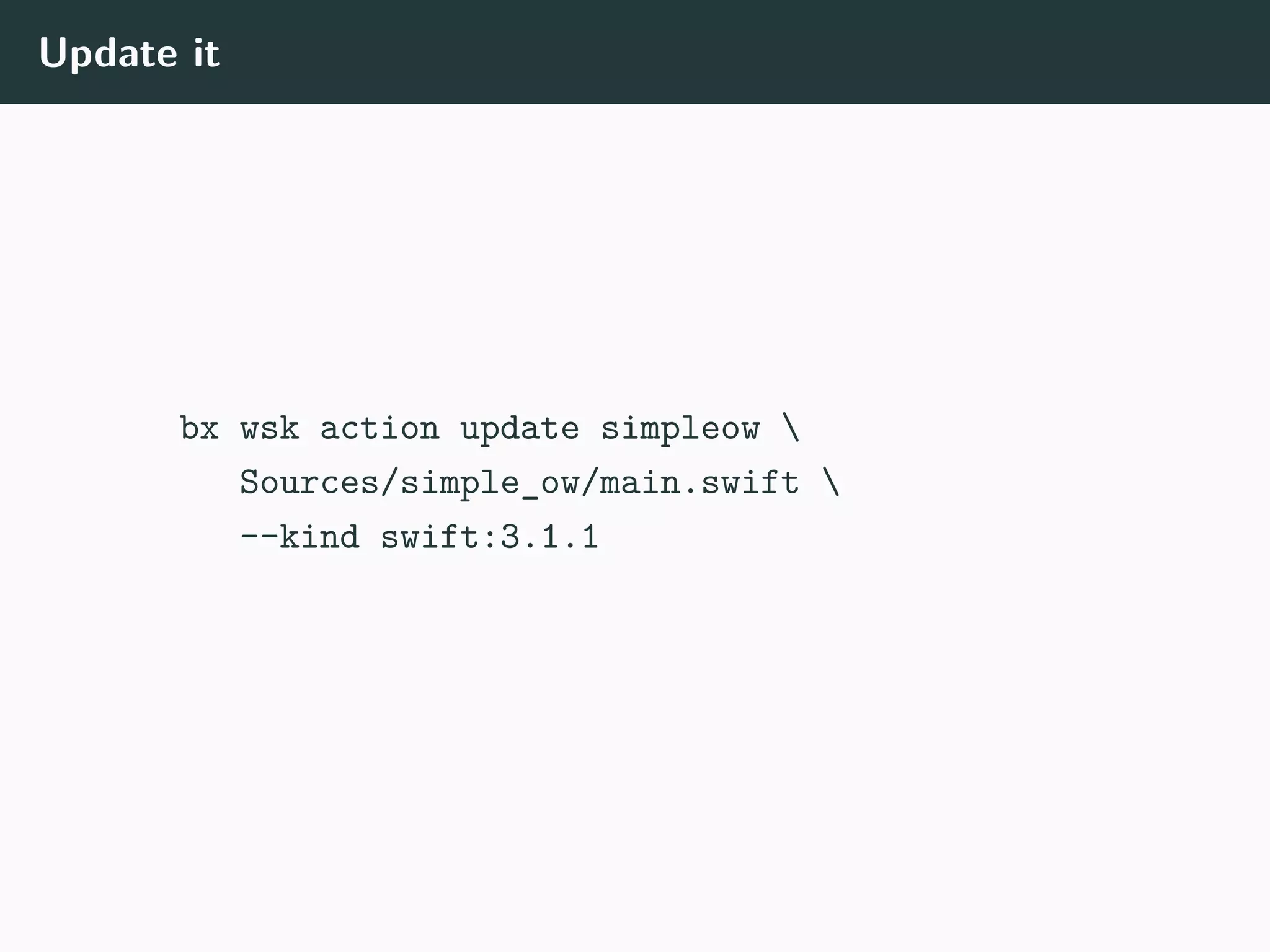
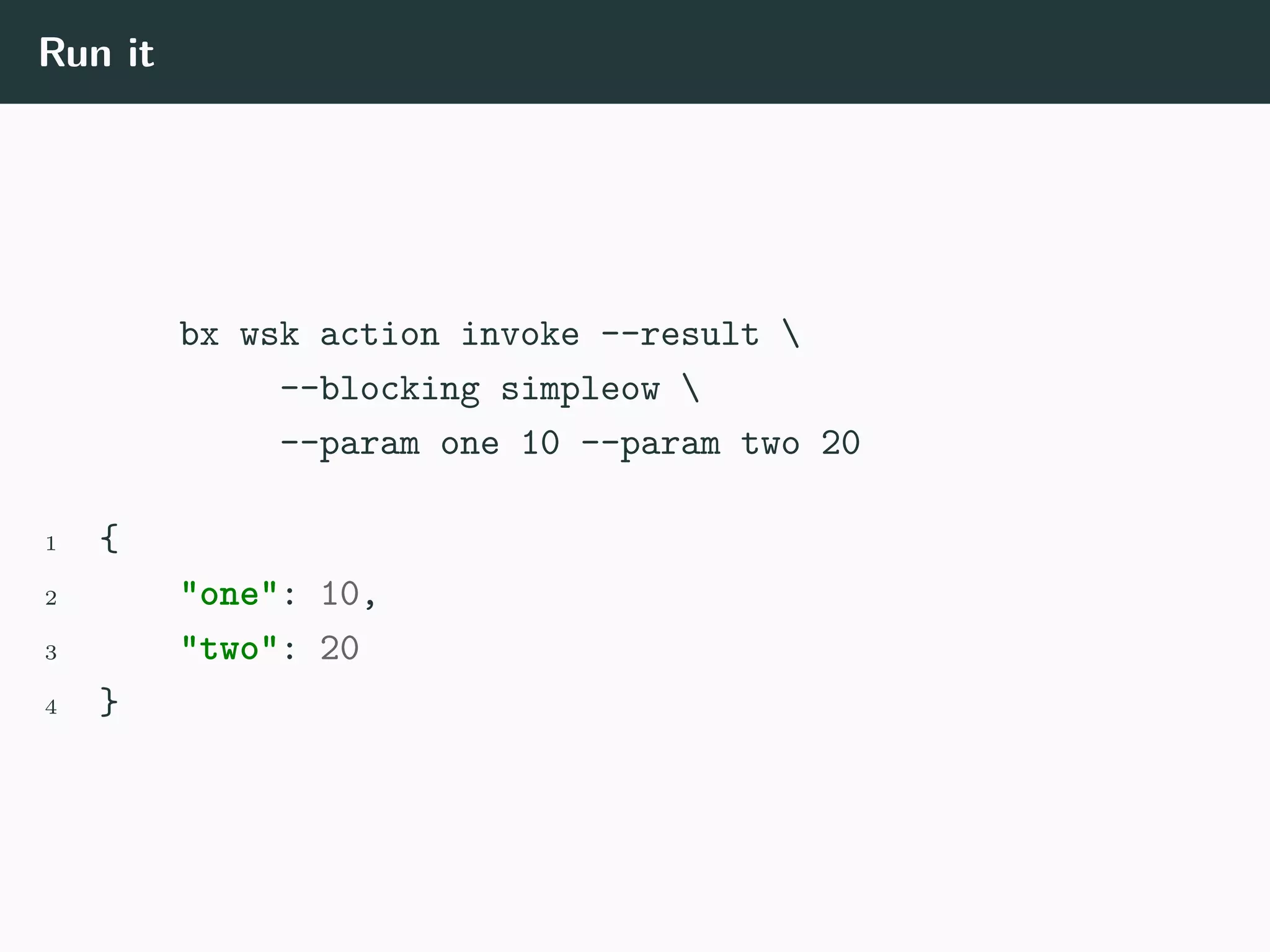
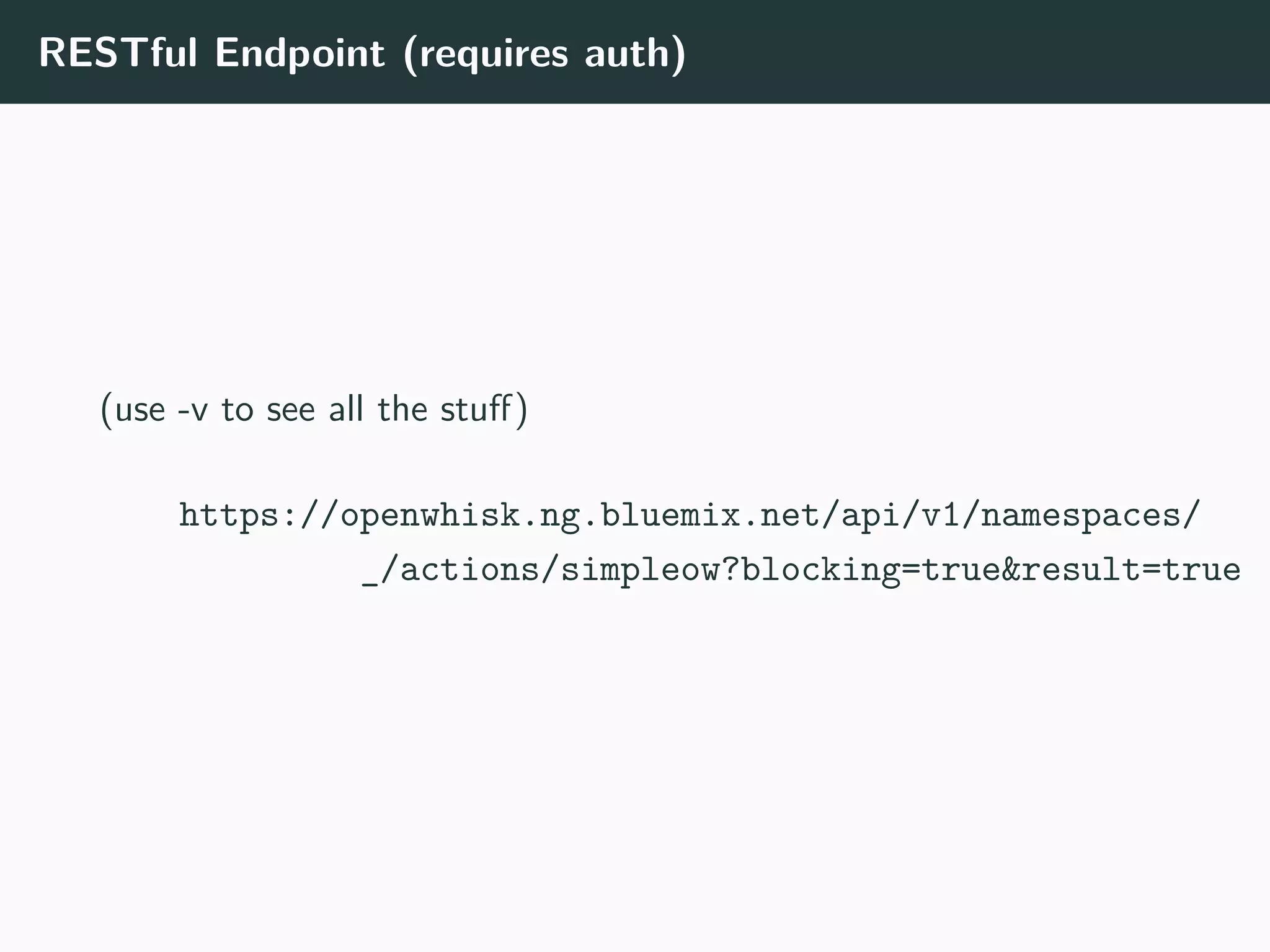
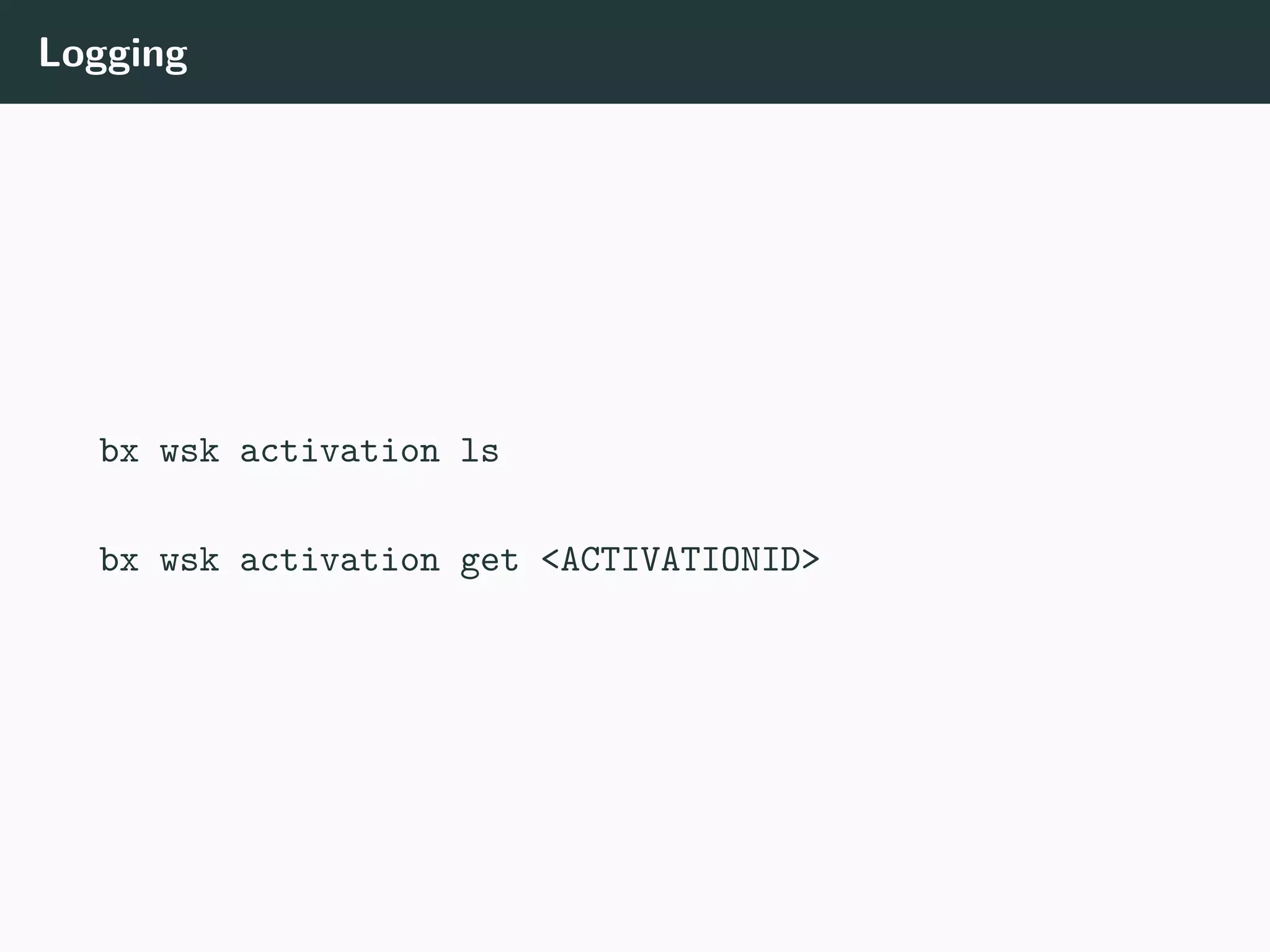
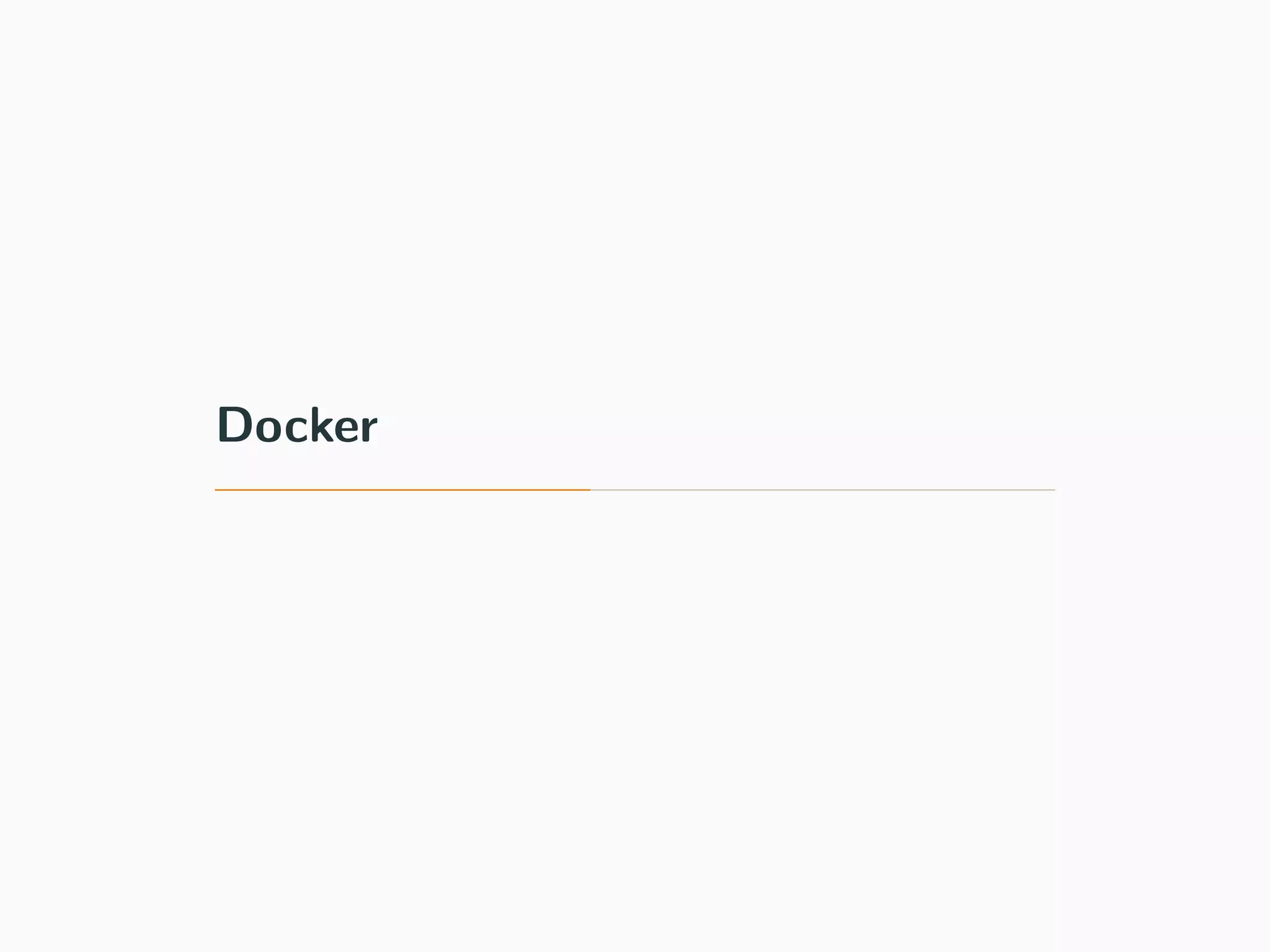
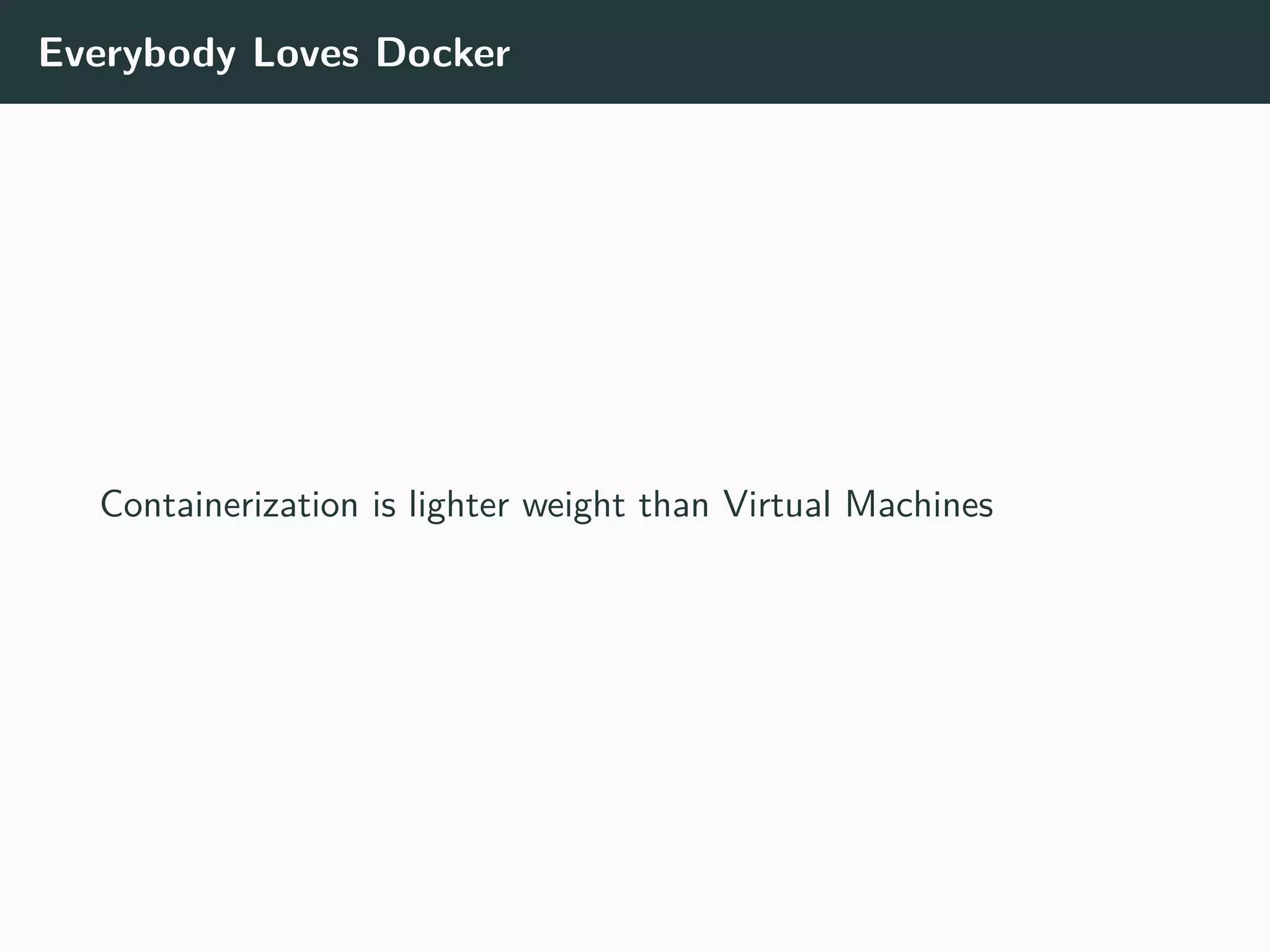
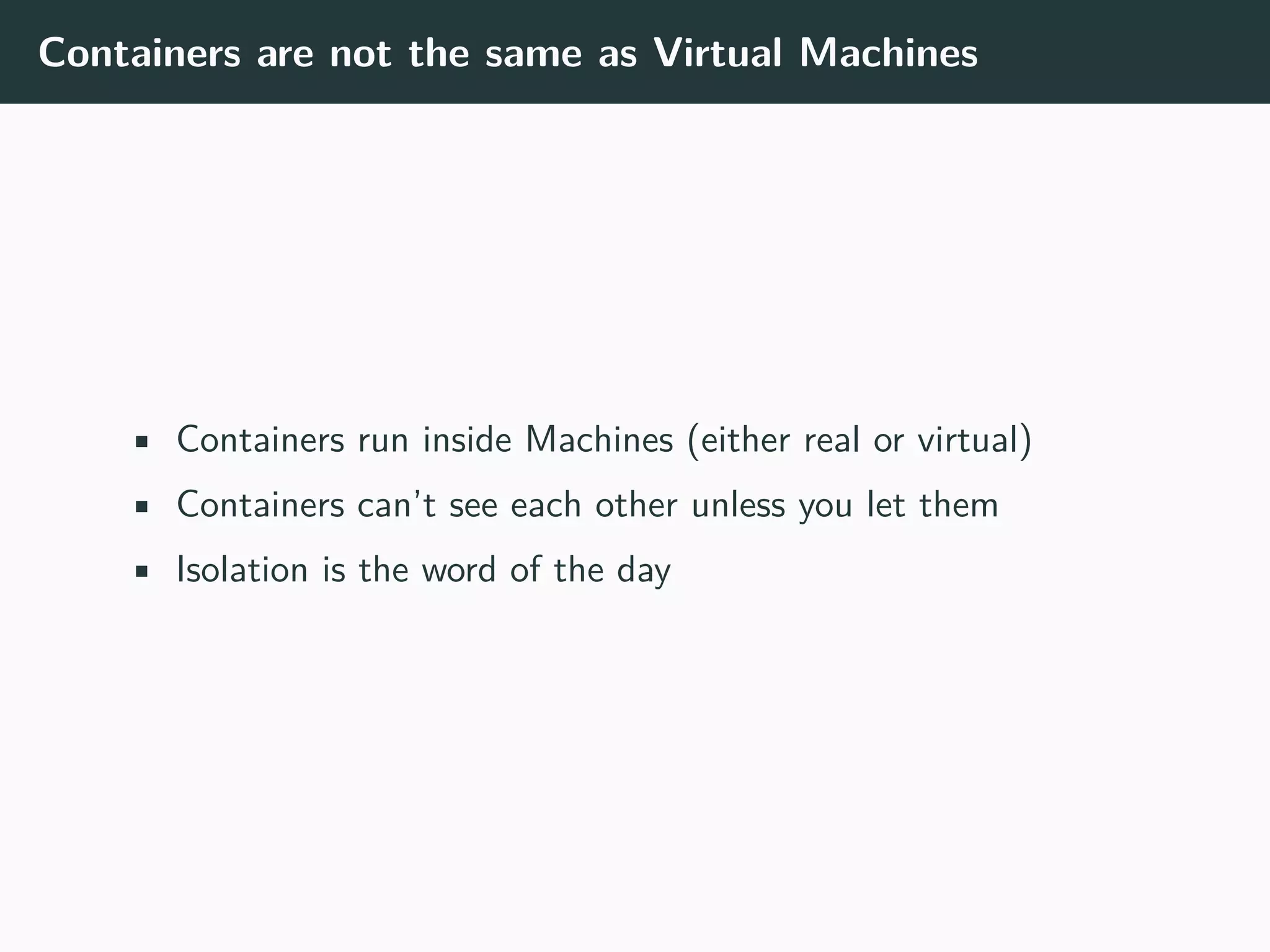
![Docker file
1 FROM swiftdocker/swift:latest
2 RUN mkdir /var/run/app
3 ADD Package.swift /var/run/app
4 ADD Sources /var/run/app/Sources
5 RUN cd /var/run/app && swift build
6 EXPOSE 8080
7 CMD [ "/var/run/app/.build/debug/<YOURAPPNAME>" ]](https://image.slidesharecdn.com/serversideswift-180223225339/75/Server-less-Swift-at-SwiftCloudWorkshop-3-27-2048.jpg)
![Docker file
1 FROM swiftdocker/swift:latest
2 RUN mkdir /var/run/app
3 ADD Package.swift /var/run/app
4 ADD Sources /var/run/app/Sources
5 RUN cd /var/run/app && swift build
6 EXPOSE 8080
7 CMD [ "/var/run/app/.build/debug/<YOURAPPNAME>" ]
Base Image
This is the image used to build on top of](https://image.slidesharecdn.com/serversideswift-180223225339/75/Server-less-Swift-at-SwiftCloudWorkshop-3-28-2048.jpg)
![Docker file
1 FROM swiftdocker/swift:latest
2 RUN mkdir /var/run/app
3 ADD Package.swift /var/run/app
4 ADD Sources /var/run/app/Sources
5 RUN cd /var/run/app && swift build
6 EXPOSE 8080
7 CMD [ "/var/run/app/.build/debug/<YOURAPPNAME>" ]
RUN a command
executes a command in the new docker container. In this case,
create a directory for our code.](https://image.slidesharecdn.com/serversideswift-180223225339/75/Server-less-Swift-at-SwiftCloudWorkshop-3-29-2048.jpg)
![Docker file
1 FROM swiftdocker/swift:latest
2 RUN mkdir /var/run/app
3 ADD Package.swift /var/run/app
4 ADD Sources /var/run/app/Sources
5 RUN cd /var/run/app && swift build
6 EXPOSE 8080
7 CMD [ "/var/run/app/.build/debug/<YOURAPPNAME>" ]
copy files into our new container
copies a single file from the currenct directory to the destination
path in the container.](https://image.slidesharecdn.com/serversideswift-180223225339/75/Server-less-Swift-at-SwiftCloudWorkshop-3-30-2048.jpg)
![Docker file
1 FROM swiftdocker/swift:latest
2 RUN mkdir /var/run/app
3 ADD Package.swift /var/run/app
4 ADD Sources /var/run/app/Sources
5 RUN cd /var/run/app && swift build
6 EXPOSE 8080
7 CMD [ "/var/run/app/.build/debug/<YOURAPPNAME>" ]
copy directory into our new container
copies (with recursion) a directory file from the currenct directory
to the destination path in the container.](https://image.slidesharecdn.com/serversideswift-180223225339/75/Server-less-Swift-at-SwiftCloudWorkshop-3-31-2048.jpg)
![Docker file
1 FROM swiftdocker/swift:latest
2 RUN mkdir /var/run/app
3 ADD Package.swift /var/run/app
4 ADD Sources /var/run/app/Sources
5 RUN cd /var/run/app && swift build
6 EXPOSE 8080
7 CMD [ "/var/run/app/.build/debug/<YOURAPPNAME>" ]
Run a command
executes a command in the new docker container. change
directory and build the project.](https://image.slidesharecdn.com/serversideswift-180223225339/75/Server-less-Swift-at-SwiftCloudWorkshop-3-32-2048.jpg)
![Docker file
1 FROM swiftdocker/swift:latest
2 RUN mkdir /var/run/app
3 ADD Package.swift /var/run/app
4 ADD Sources /var/run/app/Sources
5 RUN cd /var/run/app && swift build
6 EXPOSE 8080
7 CMD [ "/var/run/app/.build/debug/<YOURAPPNAME>" ]
register a port that can be opened
This registers a port and lets the docker environment know this
port can be opened.](https://image.slidesharecdn.com/serversideswift-180223225339/75/Server-less-Swift-at-SwiftCloudWorkshop-3-33-2048.jpg)
![Docker file
1 FROM swiftdocker/swift:latest
2 RUN mkdir /var/run/app
3 ADD Package.swift /var/run/app
4 ADD Sources /var/run/app/Sources
5 RUN cd /var/run/app && swift build
6 EXPOSE 8080
7 CMD [ "/var/run/app/.build/debug/<YOURAPPNAME>" ]
Entrypoint
This is the entrypoint of the container, and this is run during
‘docker run‘](https://image.slidesharecdn.com/serversideswift-180223225339/75/Server-less-Swift-at-SwiftCloudWorkshop-3-34-2048.jpg)

